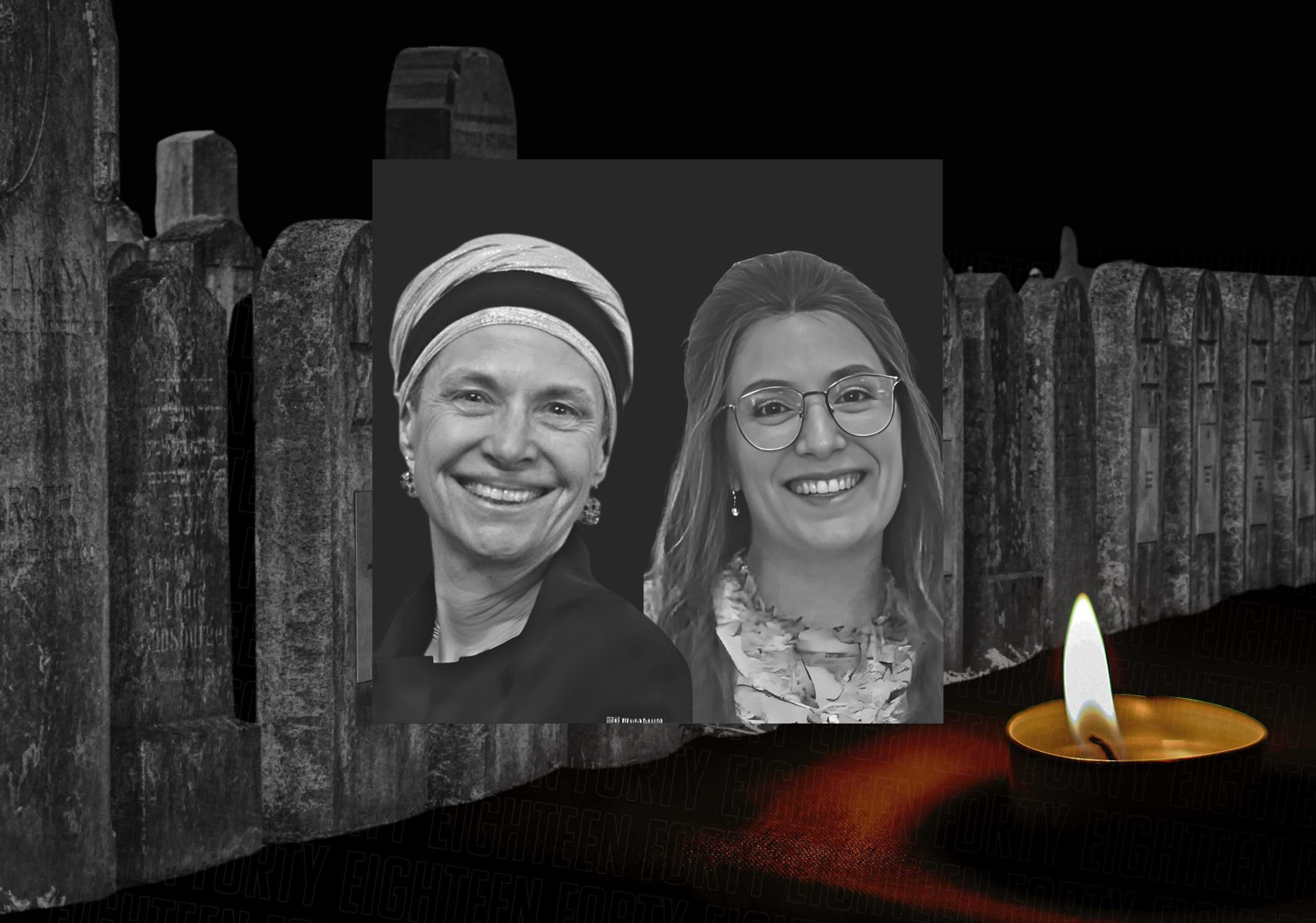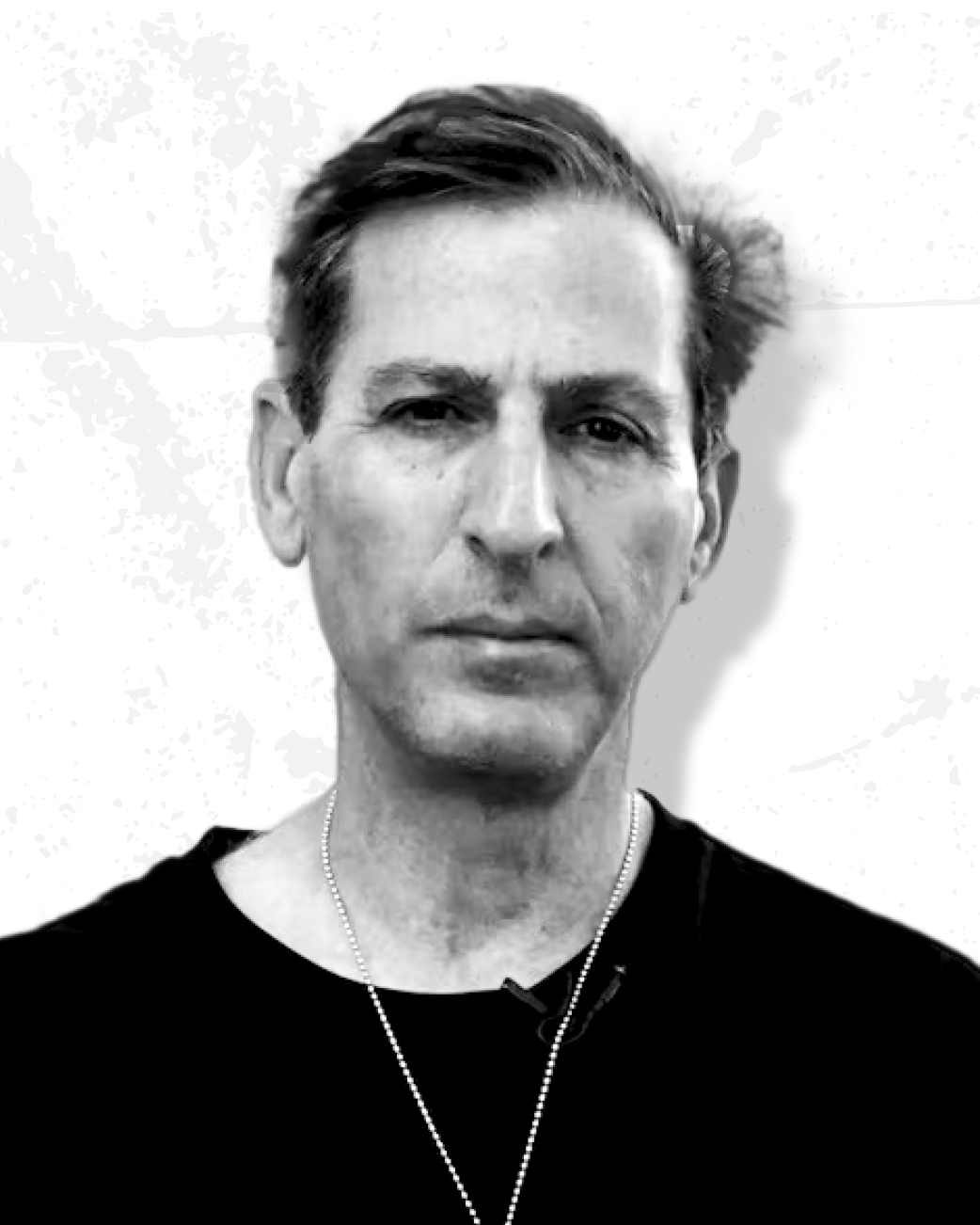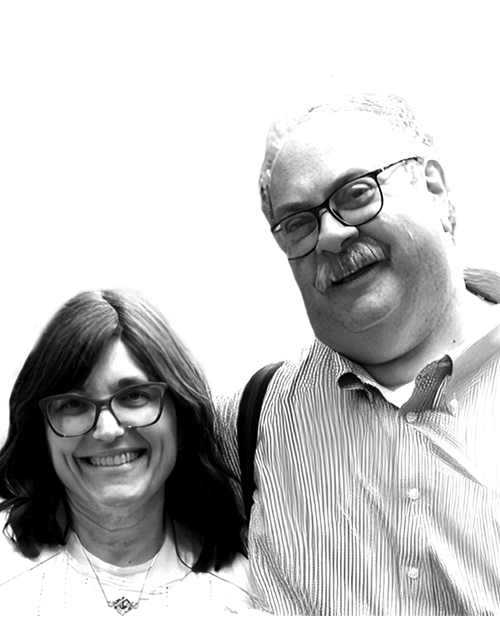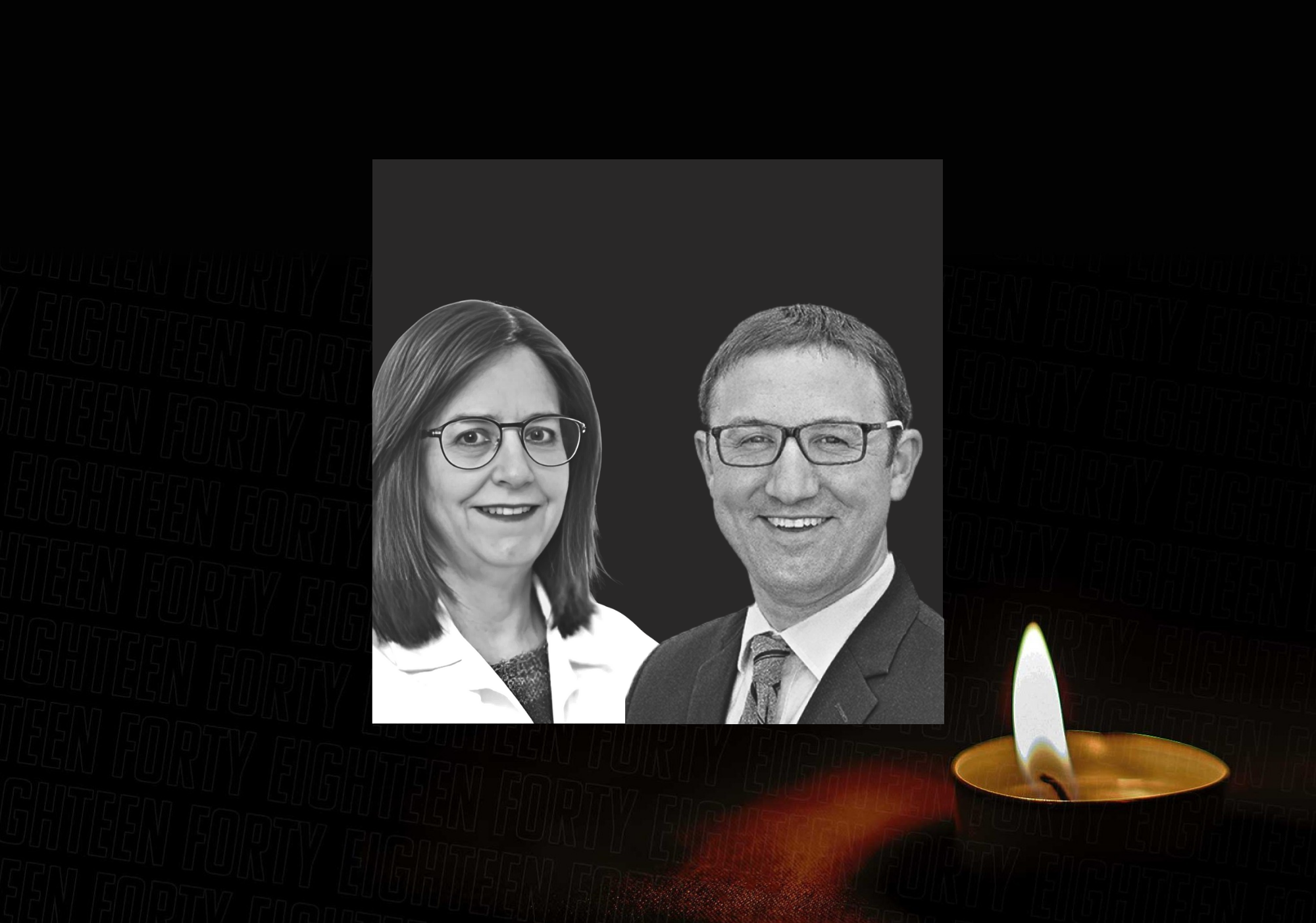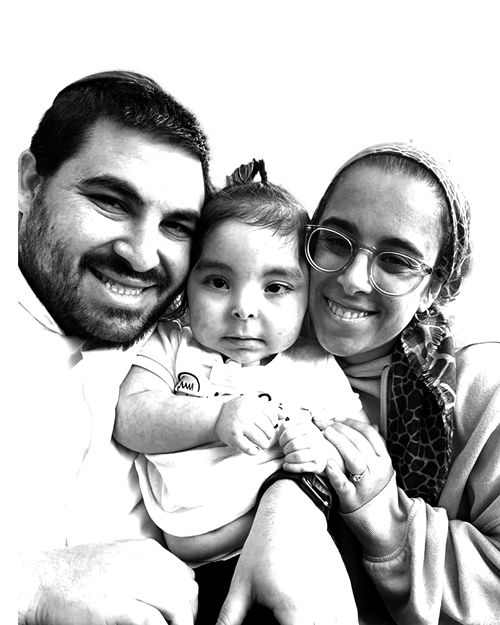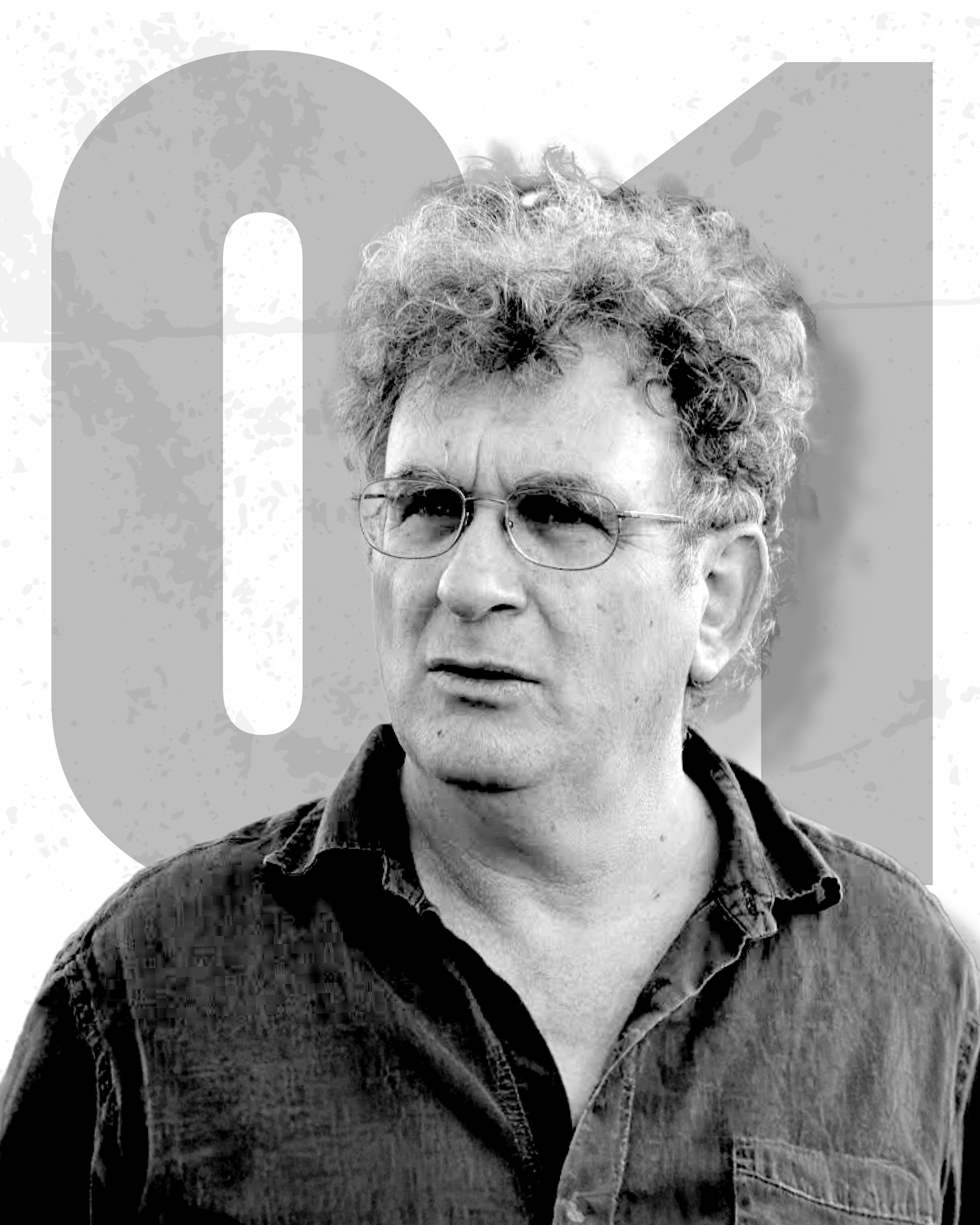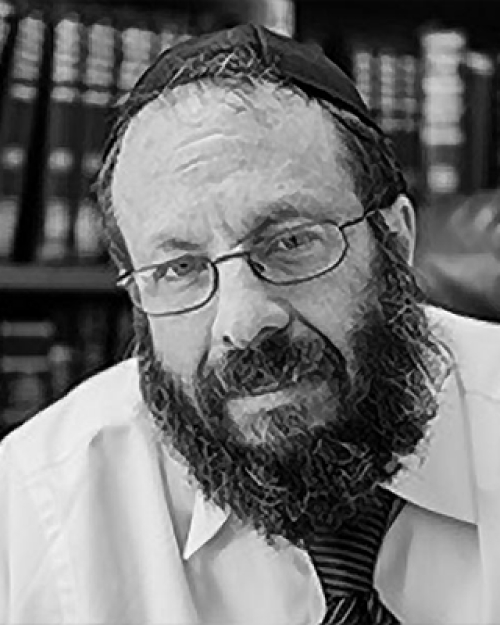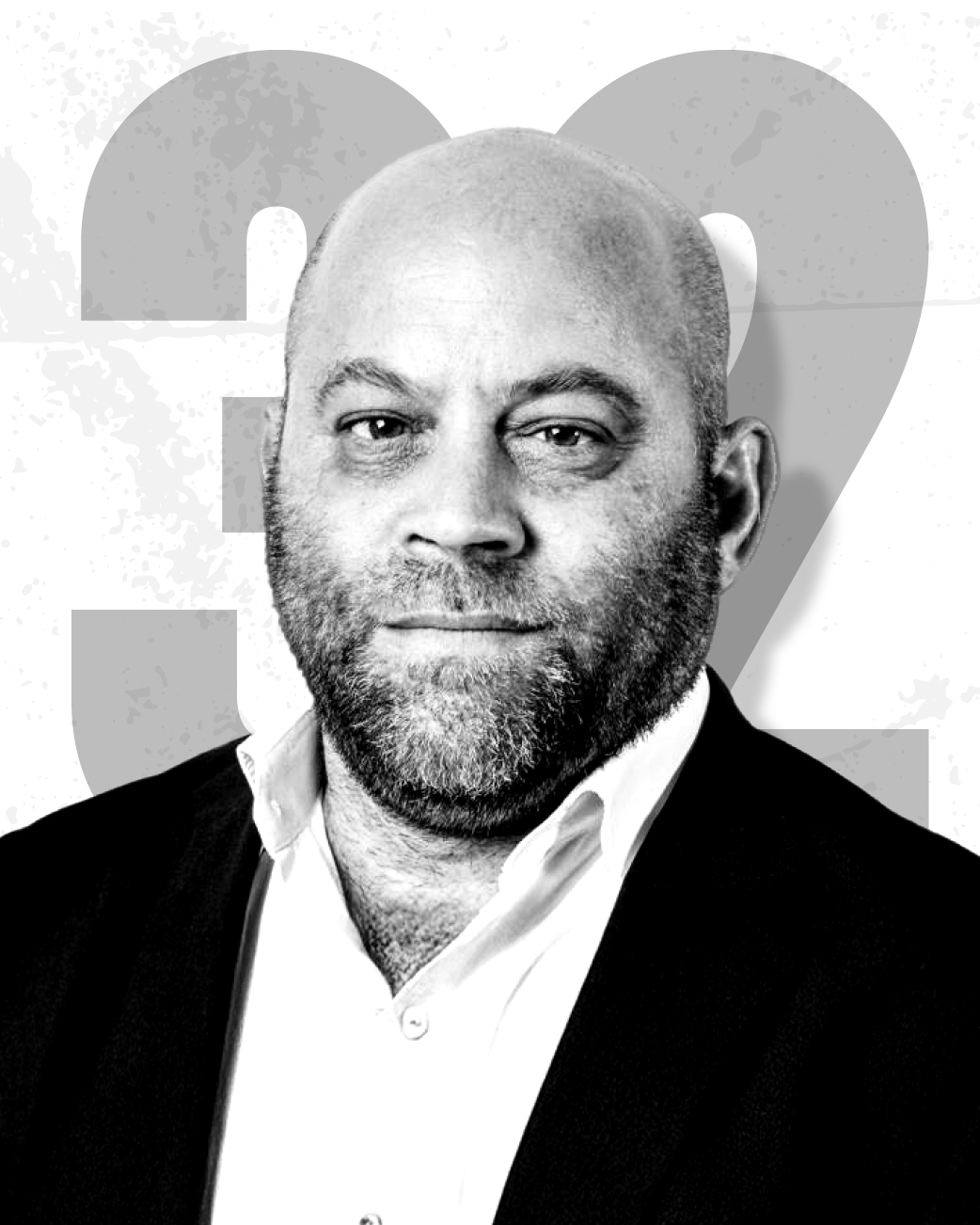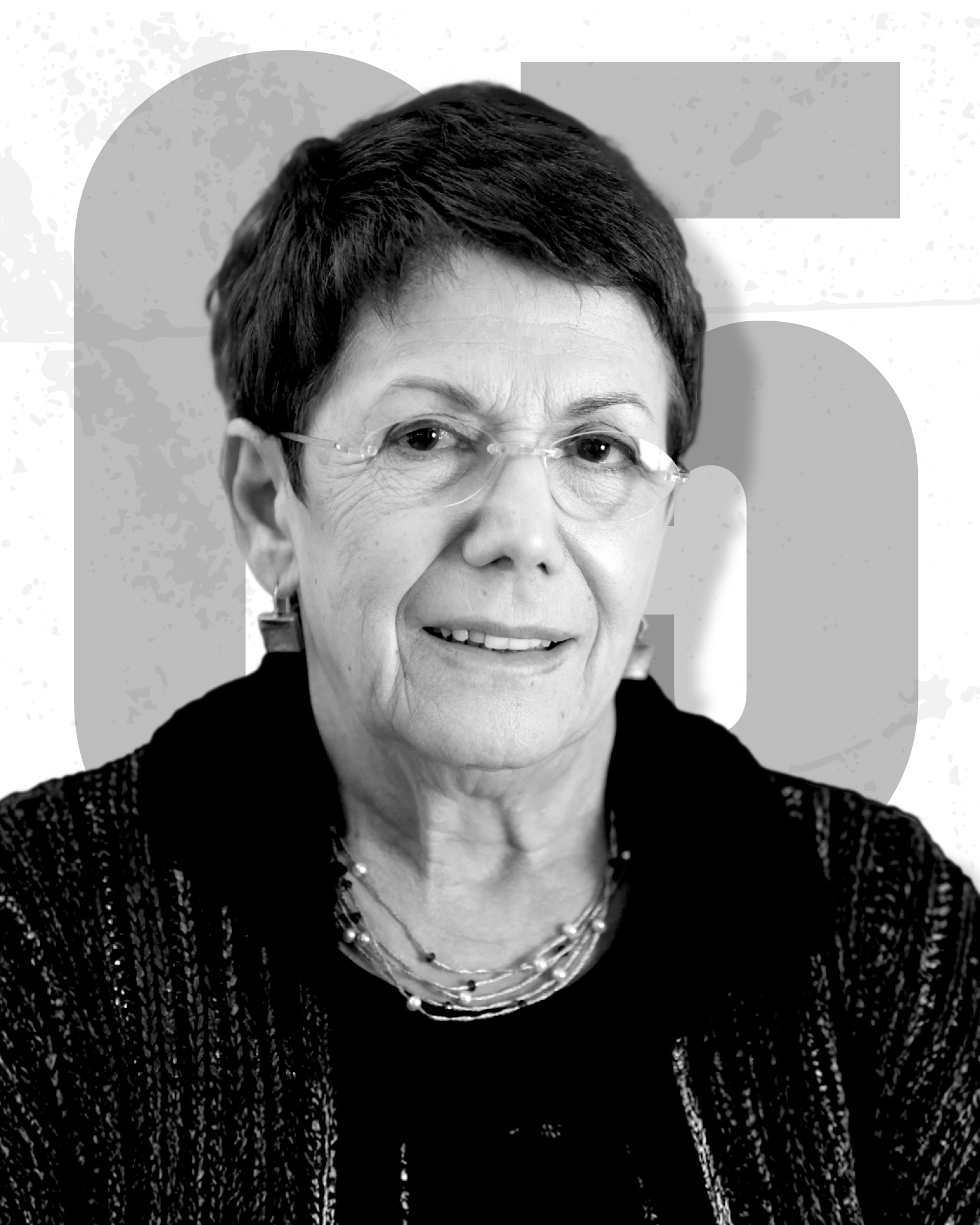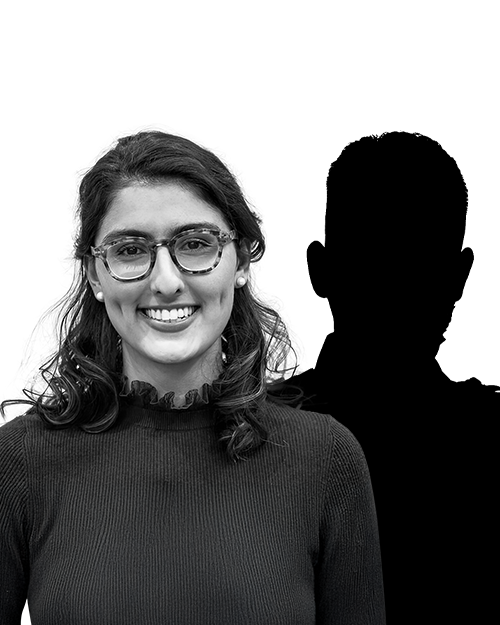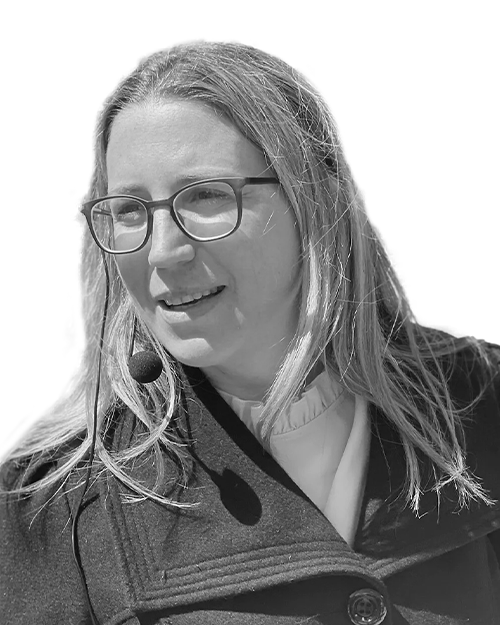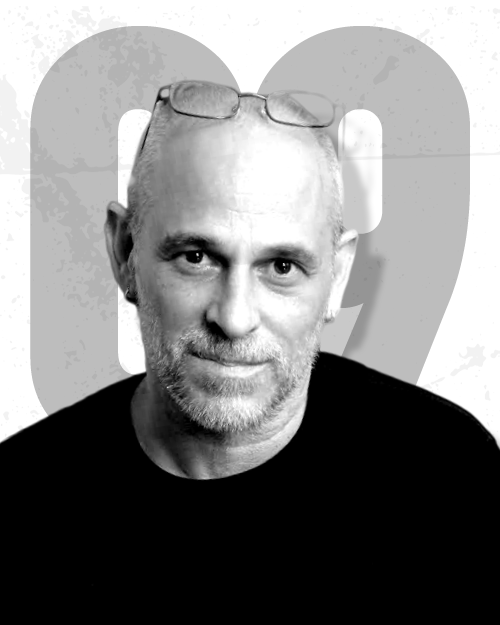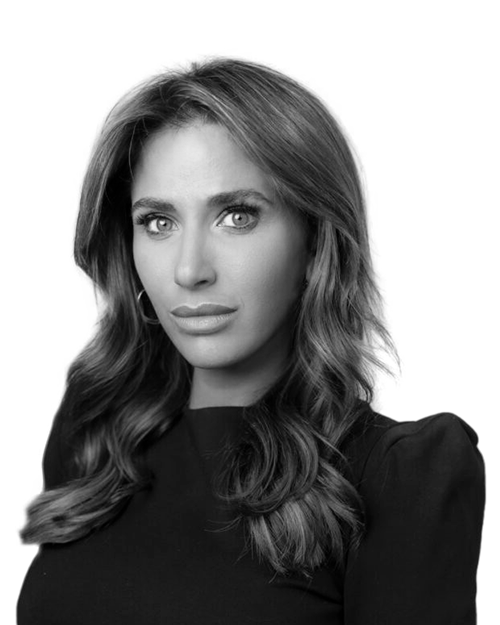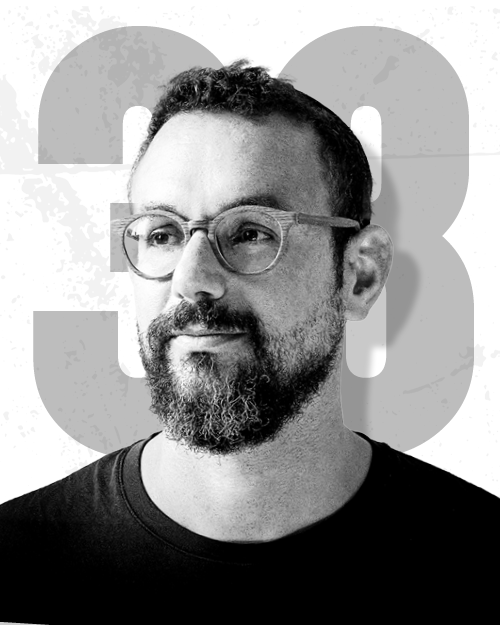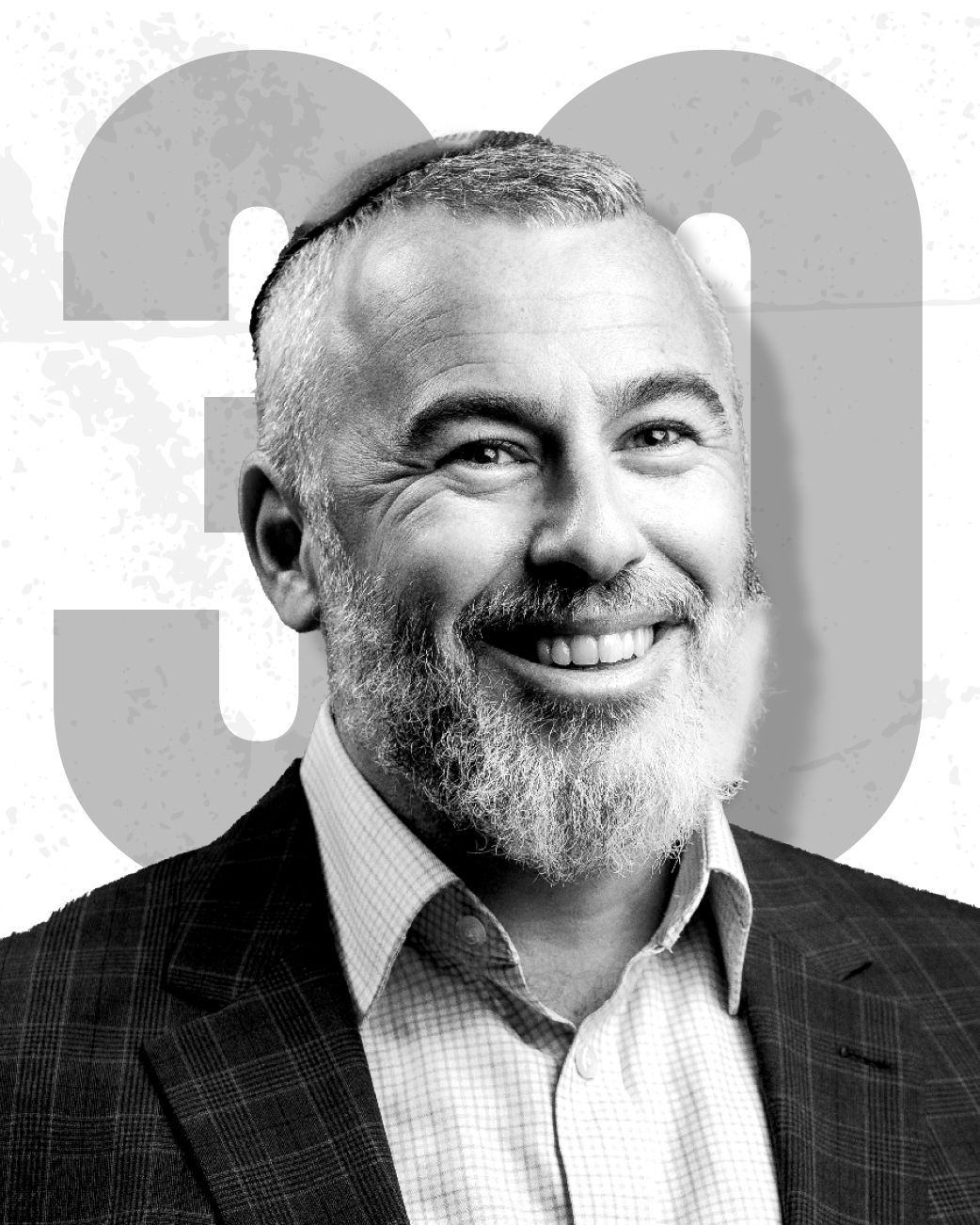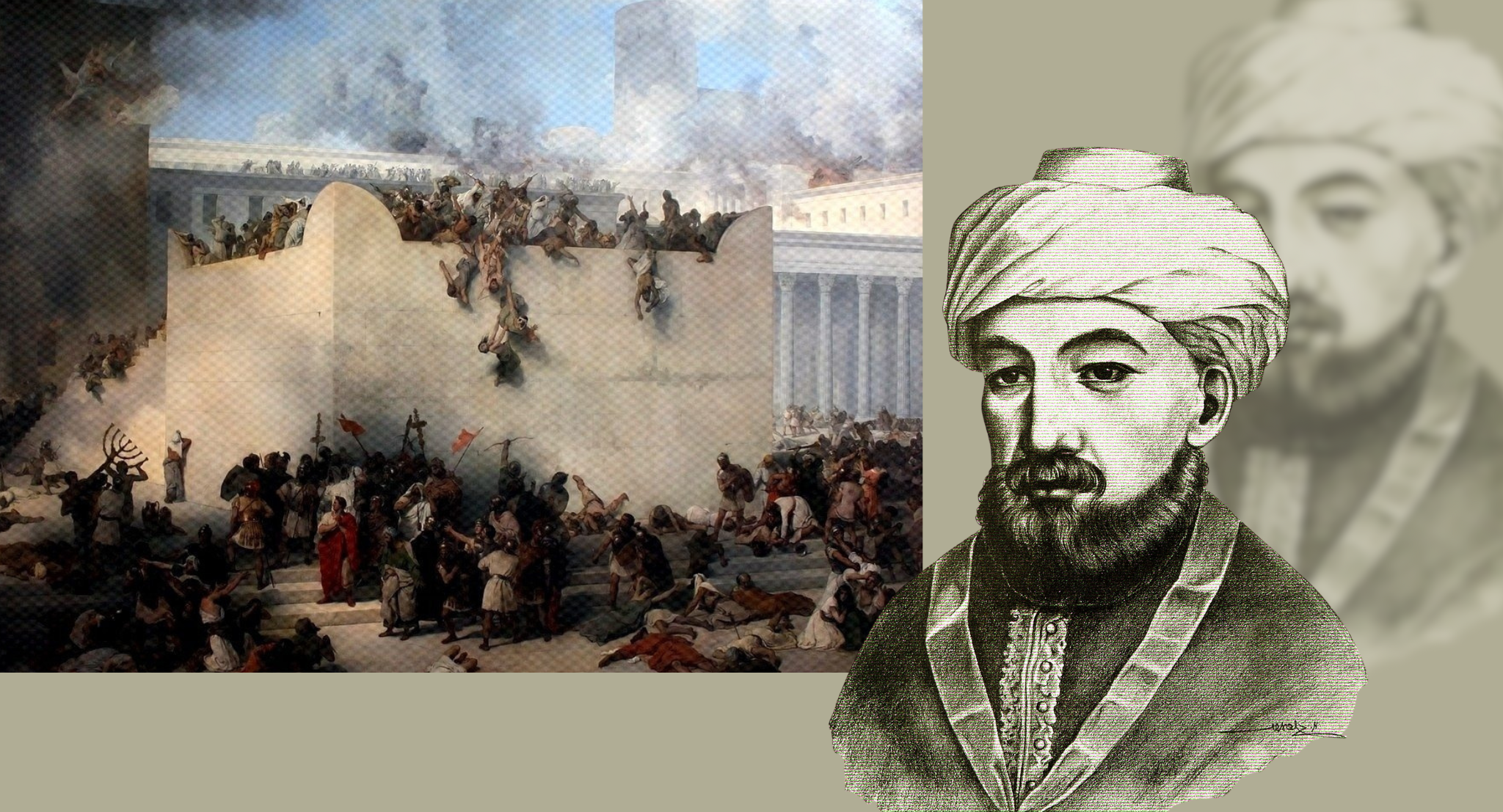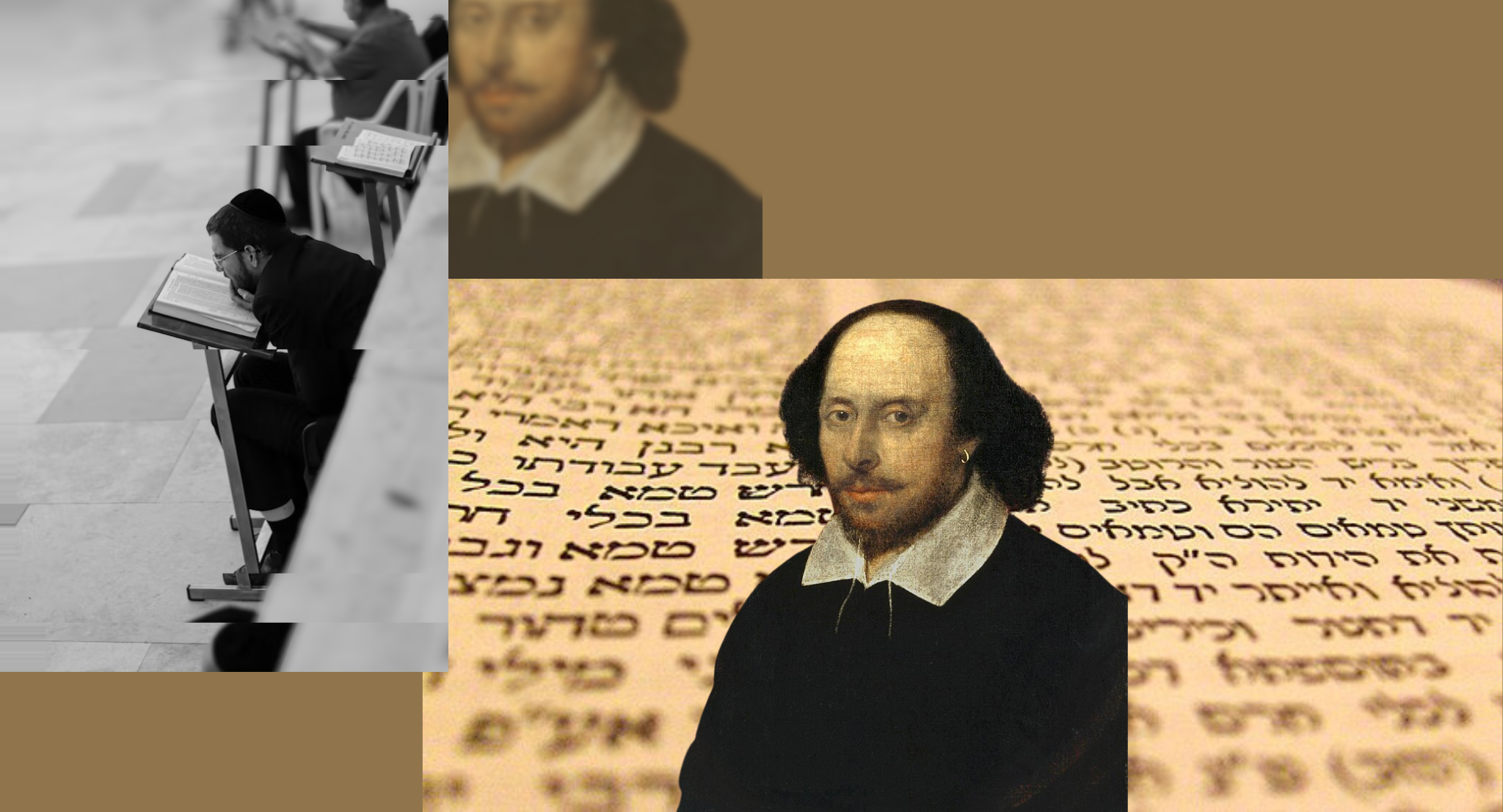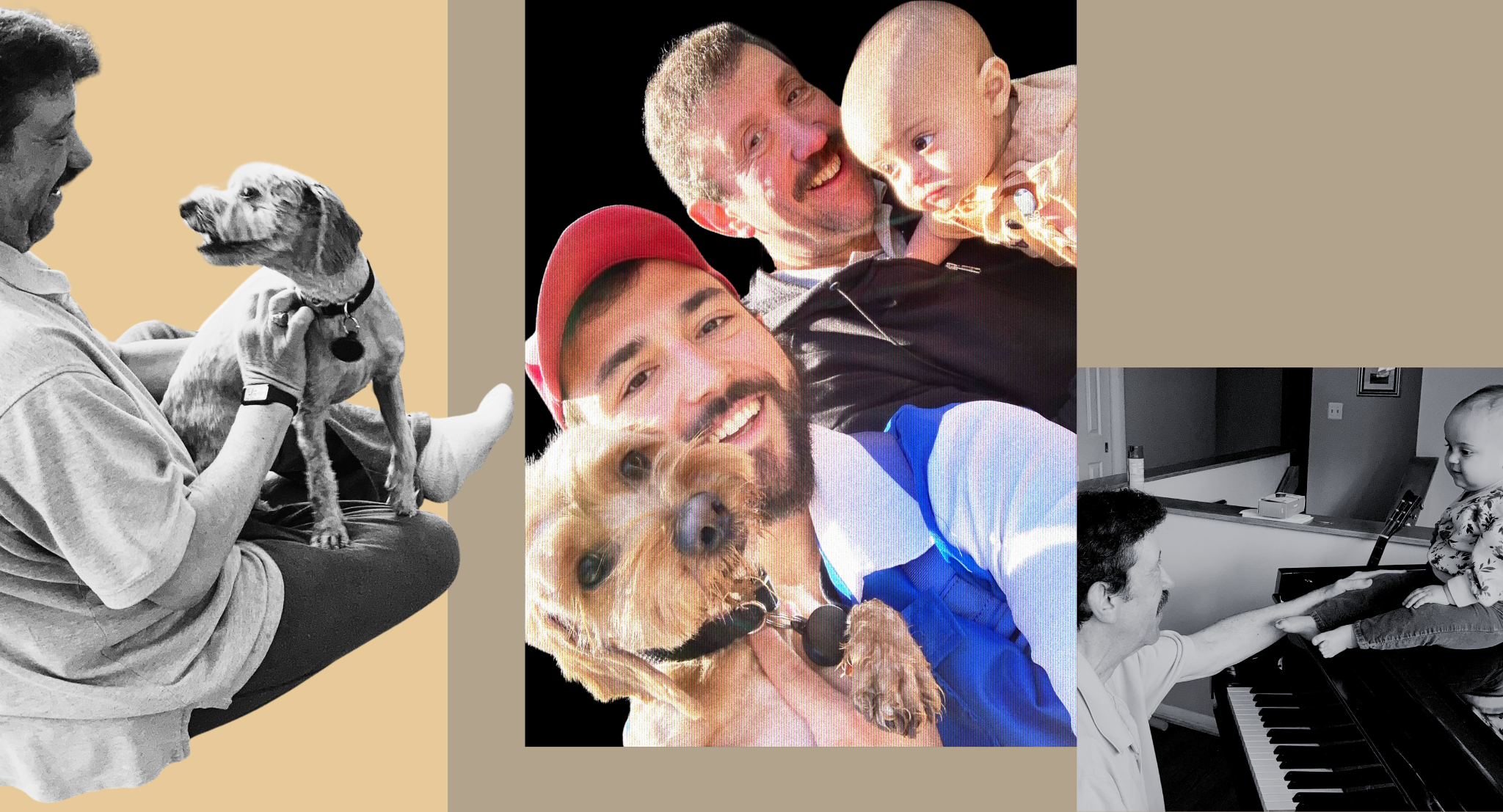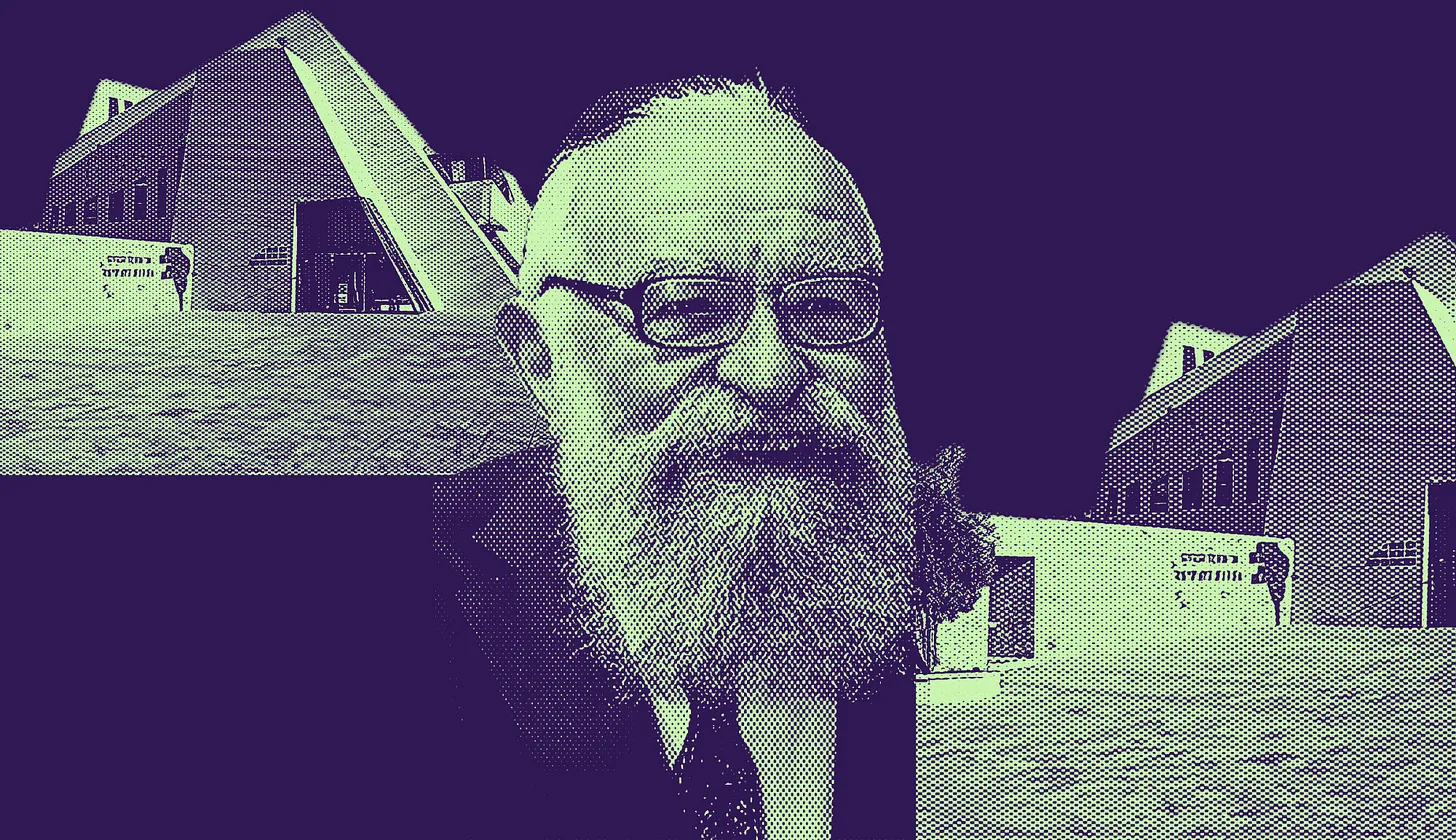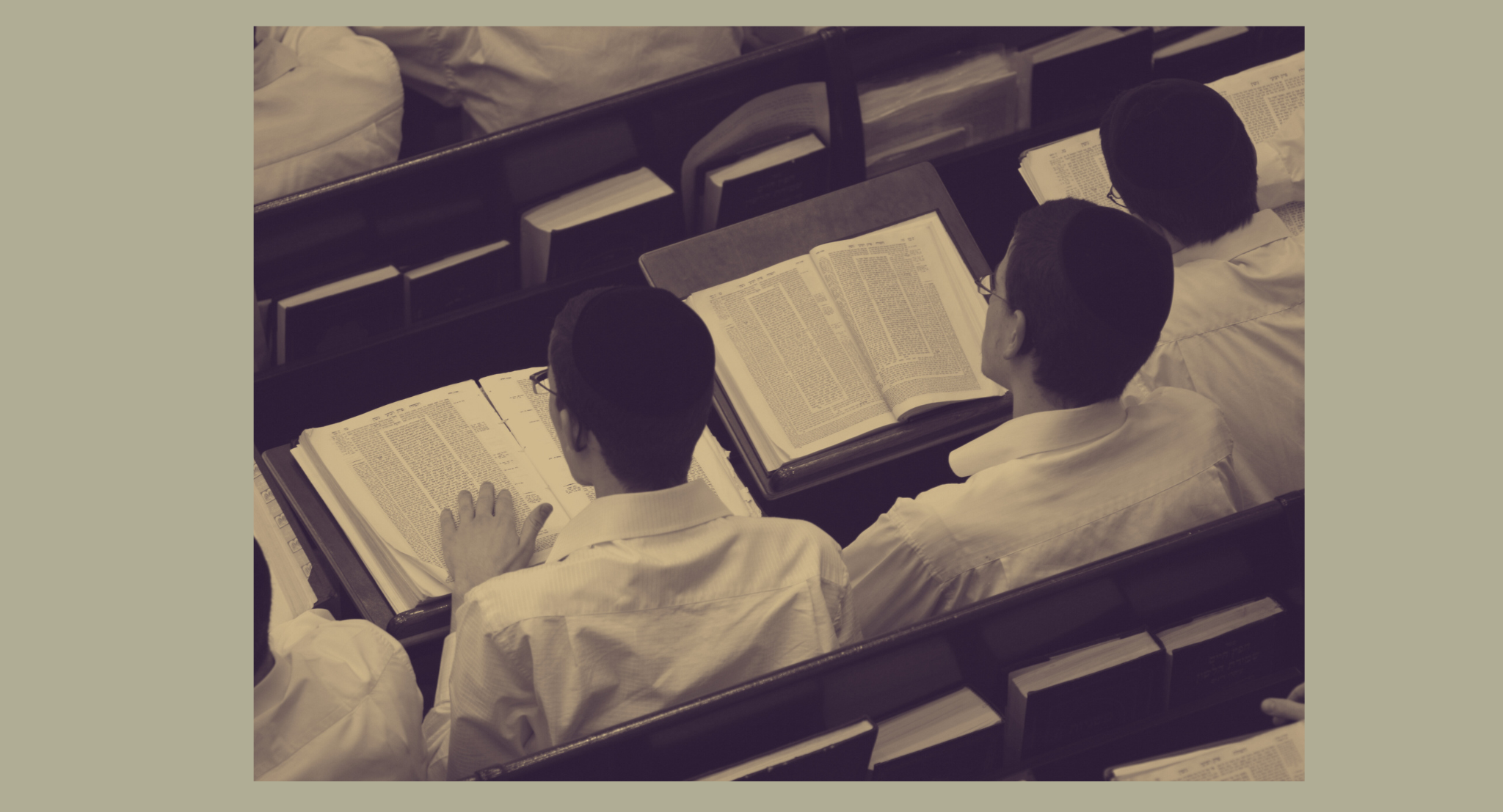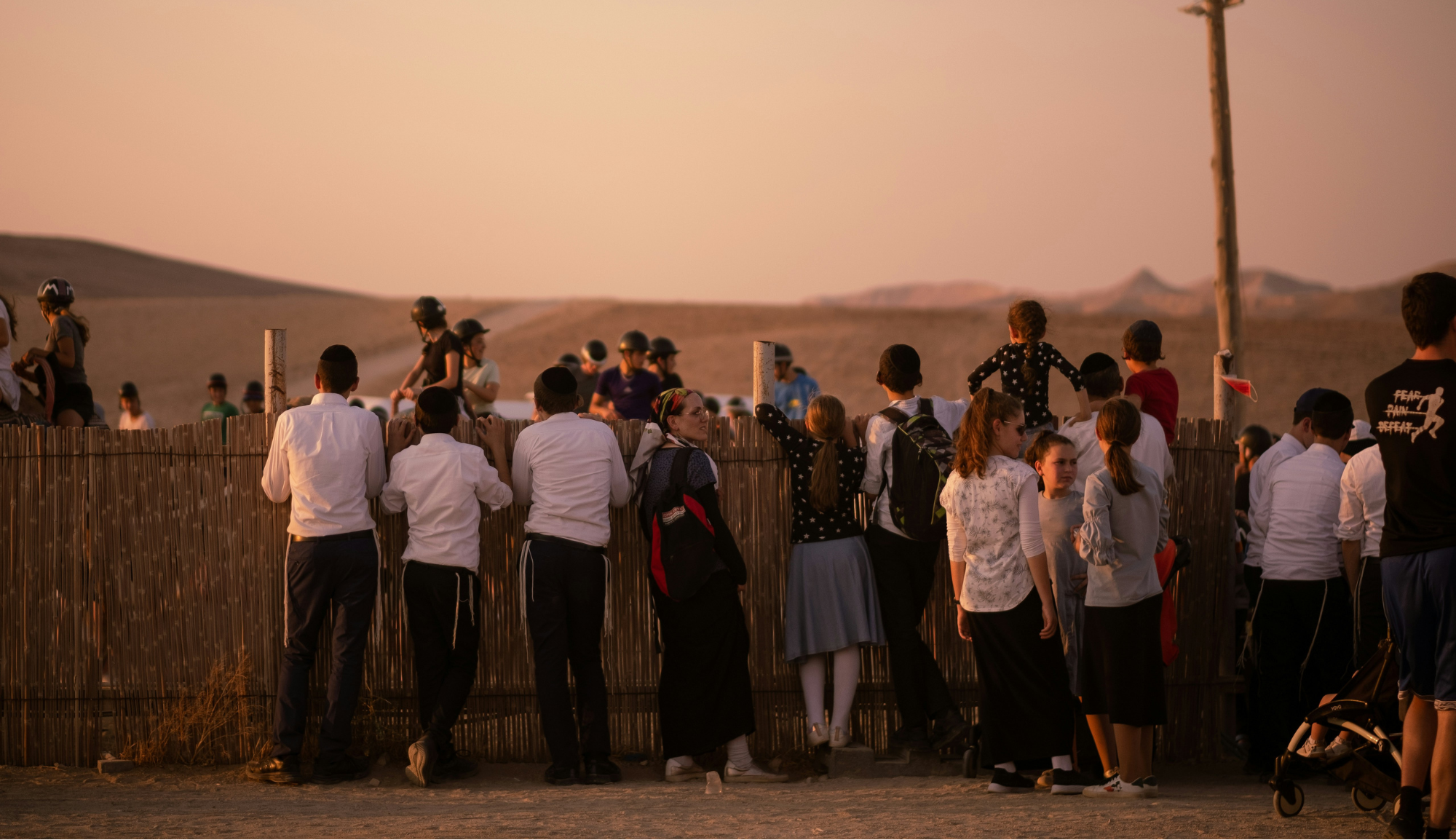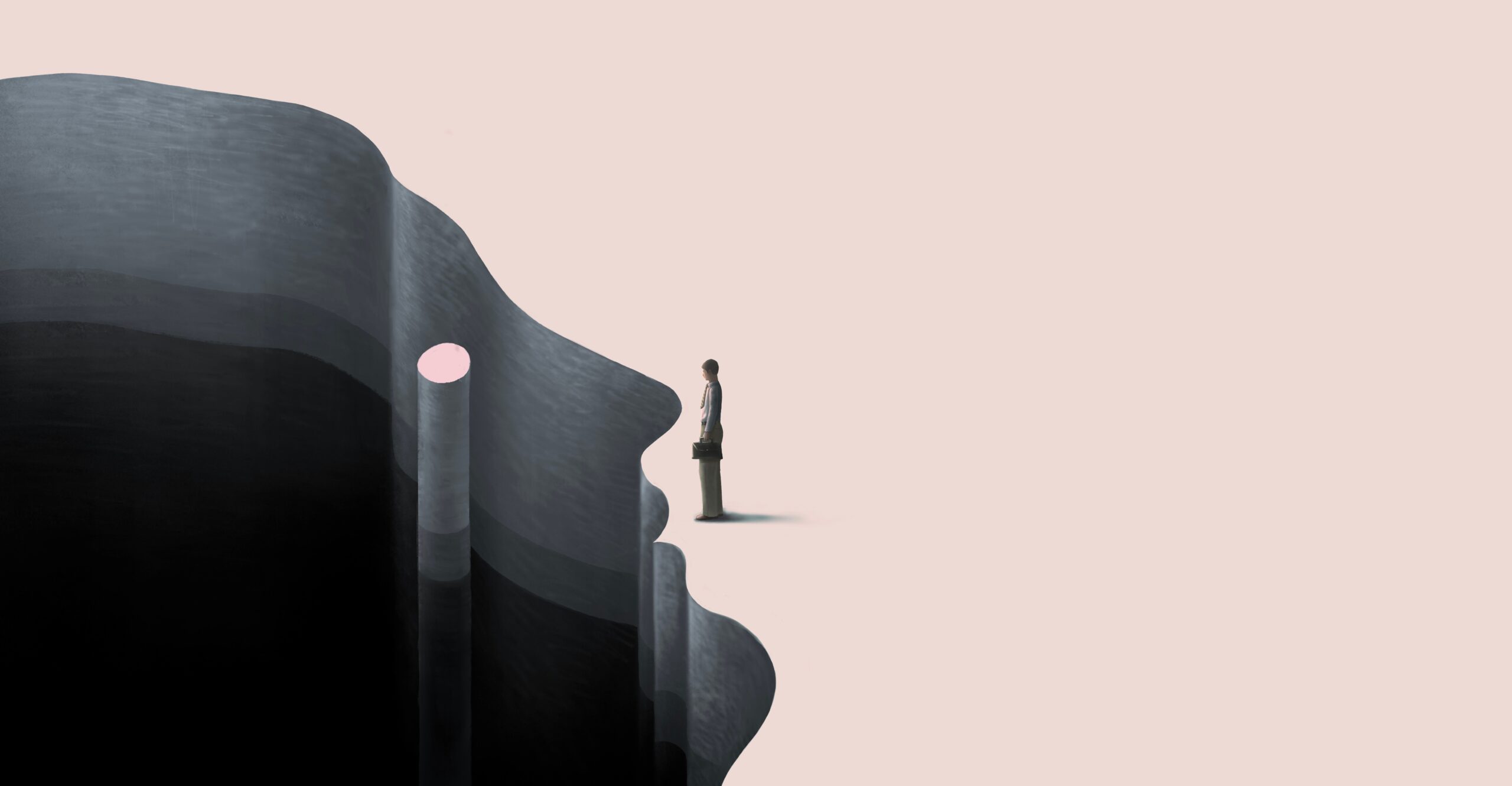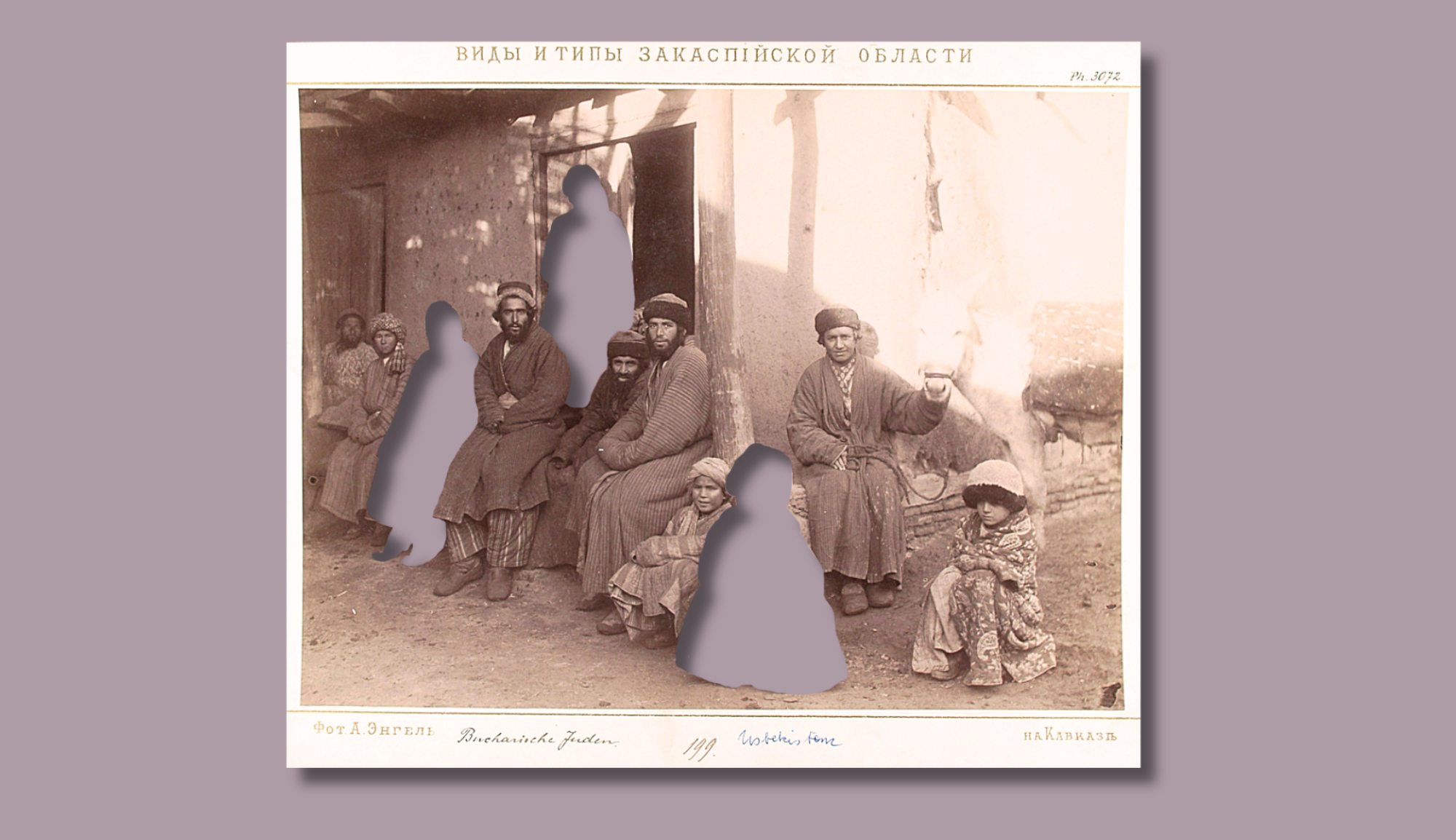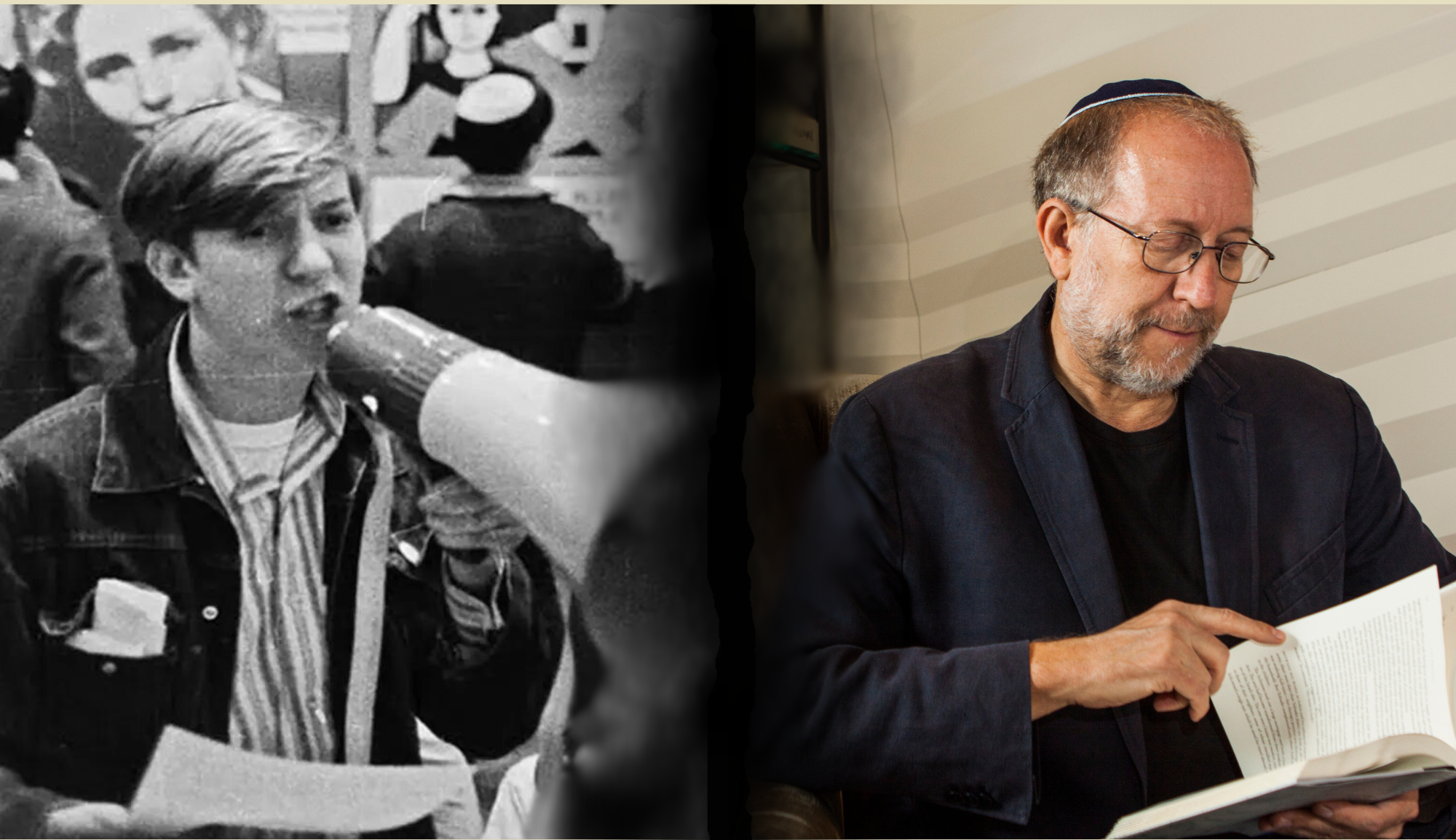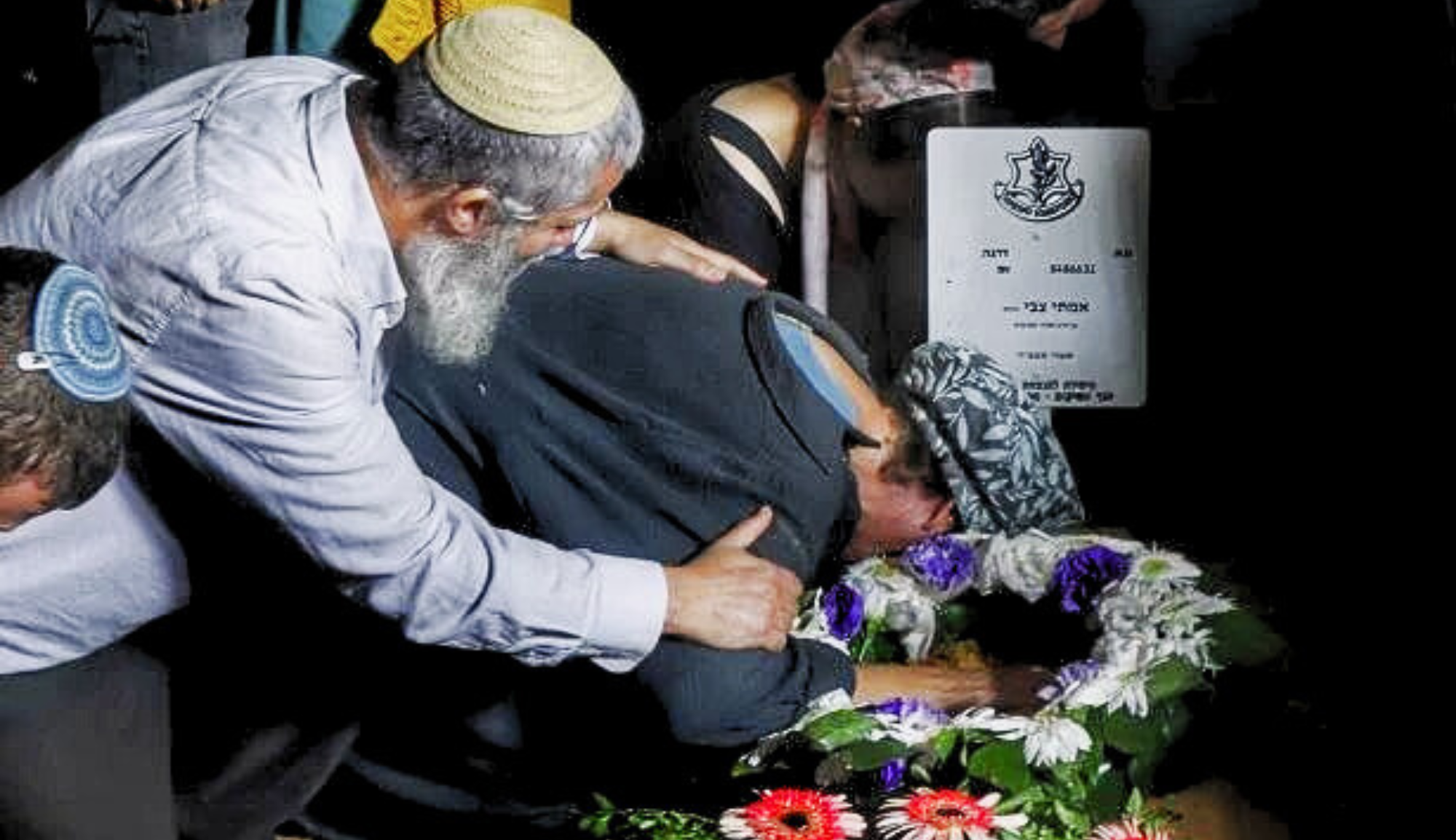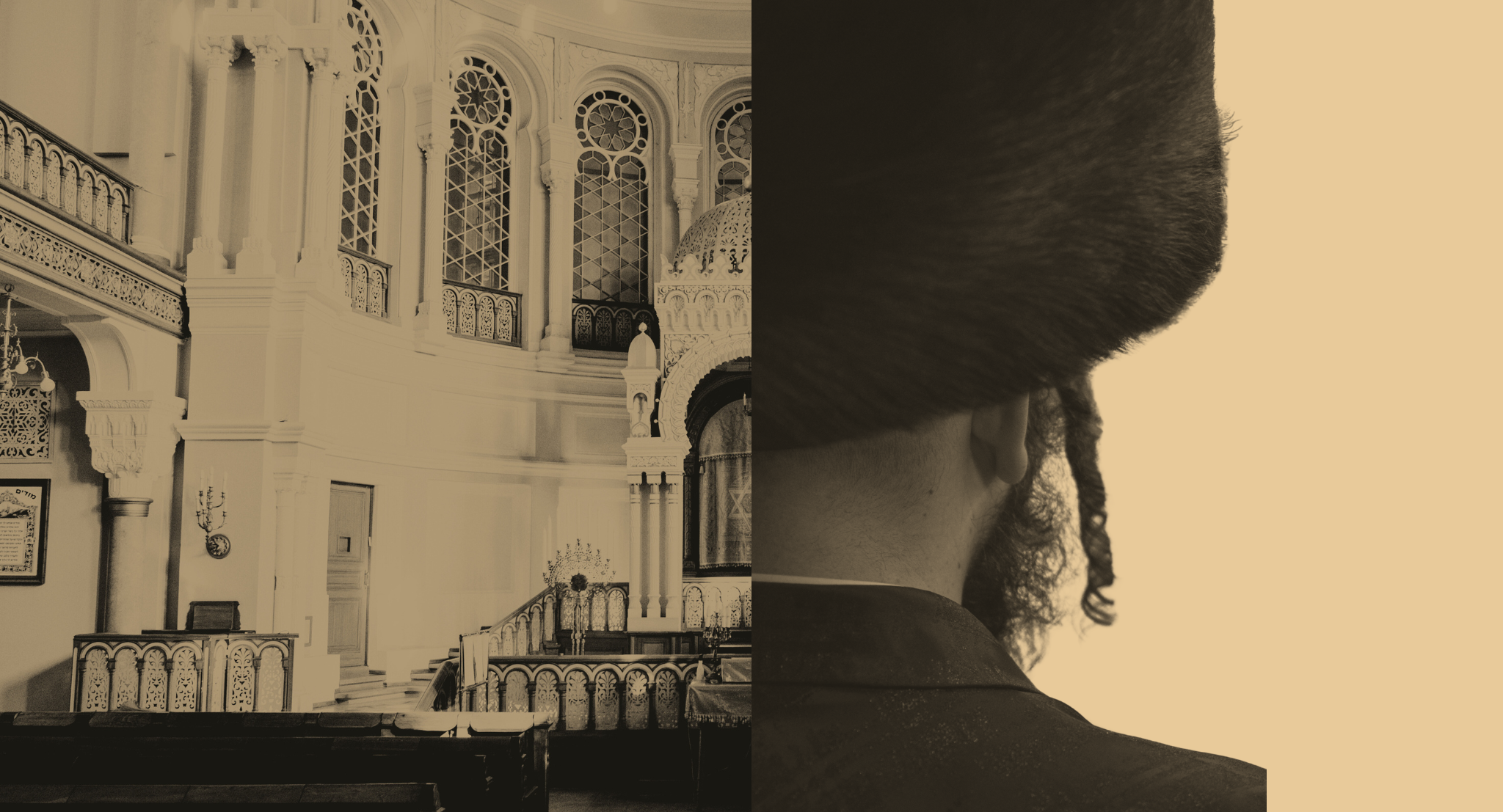Yisroel Kaminetsky: The Goal of Jewish Education
In this edition of the 18Forty Podcast, we talk to David’s rebbe, Rav Yisroel Kaminetsky, longtime principal of DRS Yeshiva High School, about the state of Jewish education in America.
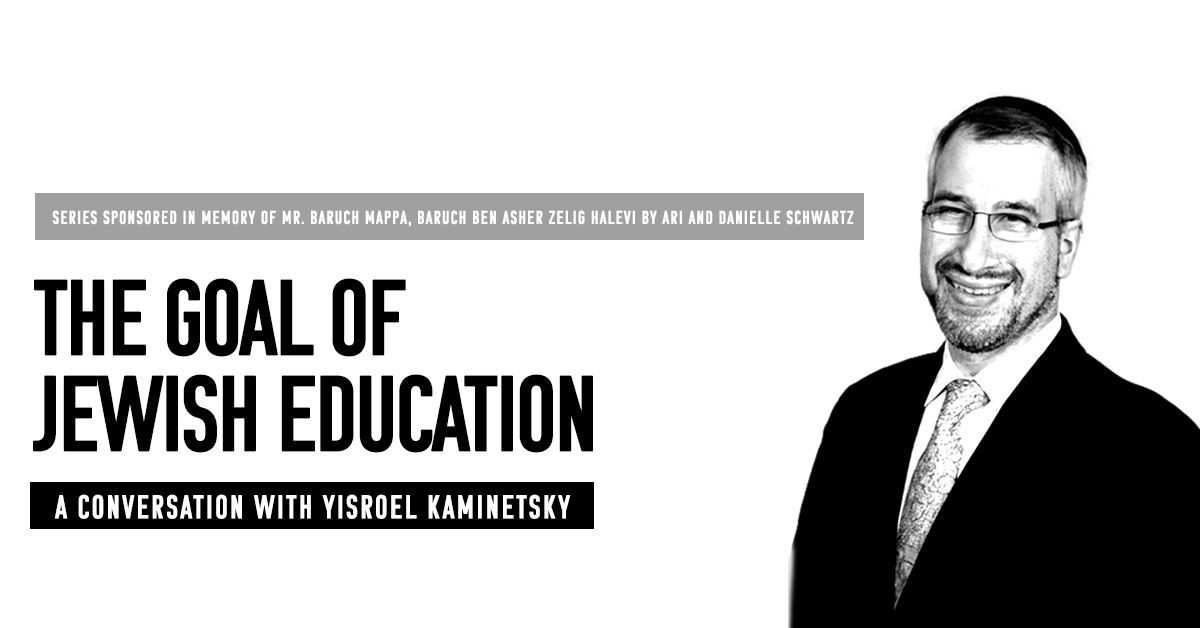
Summary
In this edition of the 18Forty Podcast, we talk to David’s rebbe, Rabbi Yisroel Kaminetsky, longtime principal of DRS Yeshiva High School, about the state of Jewish education in America.
We find ourselves in a transformative time in the realm of Jewish education. Jewish literacy is at an all-time high, and yet we are still faced with existential angst. In this episode, Yisroel Kaminetsky tells us what goes into creating a yeshiva experience that delivers the most benefit to the most students — and how we can avoid instances of people falling through the cracks.
- How can we build a Jewish-education system that provides a “path home” for every Jew?
- How can parents supplement the education their children get at school?
- How should we define success, and in what ways can a yeshiva, God forbid, fail a student?
Tune in to hear a conversation about laying the groundwork for a strong Jewish future.
Interview begins at 25:58.
References:
A Tale of Two Cities by Charles Dickens
Lithuanian Yeshivas of the Nineteenth Century by Shaul Stampfer
Families, Rabbis and Education by Shaul Stampfer
Memorable Encounters by Dr. Joseph Kaminetsky
“I Want Arvei Psachim with Rabeinu Dovid Rishus Cold Rishus Seltzer CHECK OUT OF LIFE” on YouTube
Mesilat Yesharim by Moshe Chaim Luzzatto
Transcript
David Bashevkin:
Hello and welcome to the 18Forty Podcast where each month we explore different topic balancing modern sensibilities with traditional sensitivities to give you new approaches to timeless Jewish ideas. I’m your host David Bashevkin, and this month we’re exploring the state of Jewish education. This podcast is part of a larger exploration of those big juicy Jewish ideas, so be sure to check out 18Forty.org where you can also find videos, articles, recommended readings, and weekly emails. This series was sponsored by Ari and Danielle Schwartz in memory of Danielle’s grandfather, Mr. Baruch Mappa, Baruch Ben Asher Zelig HaLevi, who’s one of the few survivors of the Łódź Ghetto in Poland, who together with his wife, established a beautiful prosperous from life and family here in America. I know many of his grandchildren and we are so grateful to the Schwartz family and may the may the neshama of Baruch Ben Asher Zelig HaLevi have an aliyah.
It’s always exciting to start a new subject and of course that also means that I’m probably going to be reflecting or apologizing in the way that we cover it. I could say from the outset that it’s very hard to do something even remotely comprehensive on all of the issues related to Jewish education. It is a gargantuan topic that continues to shape the very fabric of our community, shape the very fabric of what it means to be Jewish in the world today, but it also differs depending on where you live, your geographic location, what community you belong to. There are massive differences between Israel and the United States. The United States and Canada. Differences depending on what communal affiliation you have, denominational affiliation you have.
There is no way that we can cover everything, but I thought it was such an essential topic and in a lot of ways I kind of wanted a breather. It felt like we’ve been doing some pretty emotional, both in emotionally heavy and theologically heavy subjects. There certainly is a lot of emotion surrounding the state of Jewish education. Maybe it’s less theologically fraught, but I thought this would be an appropriate topic, both given the subjects that we’ve covered in the past and also considering its out shaped importance in kind of reshaping the Jewish world that we all live in today.
When I think of Jewish education in many ways, I think of the quote from Charles Dickens. I believe it’s how he begins a Tale of Two Cities. He starts, “It was the best of times, it was the worst of times. It was the age of wisdom. It was the age of foolishness. It was the epoch of belief. It was the epoch of incredulity. It was the season of light, it was the season of darkness. It was the spring of hope. It was the winter of despair.”
Why do I think of Jewish education when I read these words? It’s hard not to acknowledge that it is the best of times and I don’t just mean the best of times in recent memory. In many ways, I believe it was the best of times in all of Jewish history. Never in all of Jewish history have we had so many people receiving such a robust Jewish education. Never. Not in the glory days of the European yeshiva movement, not during the Enlightenment, not during the great storied yeshivas of the Baalei Tosafot. You could write in if you think I’m wrong. But I don’t think there has ever been a time in all of Jewish history where yeshivas, seminaries, elementary school, high school education has been as robust for the common average everyday Jew.
The person who really frames the history of education and what it was like. And it is a book that we both recommend on our site and I’m going to recommend to you. Now, there’re really two books, but the author who is one of the kindest, most generous scholars really out there is somebody named Professor Shaul Stampfer. He has written several articles that relate to Jewish education. Probably his most famous book is he has a book that was published by Littman called The History of the Lithuanian Yeshivas. He has another book that I think is less read, less known, but I think even more central to what we’re talking about also published by Littman. It’s a collection of many articles that he had been previously published that had been re-edited. It’s called Families, Rabbis and Education.
And he has a chapter called Heder Study, Torah and Social Stratification, and he talks about how Jewish education used to work. And by used to, he’s really primarily talking about the 18th, maybe early 19th century, how the heder movement really moved on and how in many ways we think, and sometimes there are schools that will deliberately use the word heder and he explains, heder is the old system that people used to use for Jewish education. I believe it’s a Yiddish word. And he concludes the article with a very blunt assessment of whether or not Jewish education still runs the way that it did in Europe.
He writes, “There are institutions today that call themselves a heder. There is no copyright on the word,” he writes, “And anyone who wants to use it can do so. However, while called by the same name, they do not have the same characteristics of the traditional heder. They’re not in the home of the teacher. The parents do not bargain with the teacher or pay the teacher directly. An advancement is not up to the parents.” Meaning what class you’re in, first grade, second grade, they used to be parents moving their kids along and deciding who they were going to learn with. He also notes, “One might also add that in these institutions that call themselves a heder, there’s a lot less violence directed against children than in the past.”
There is no question that there was corporal punishment. There was they used to hit kids in schools. That is something that is merely unheard of and even in communities or a generation or two generations ago may remember that. I think nearly all communities across the board have addressed this and it’s definitely not what it was even 75 years ago. The heder is gone, but its heritage is around us in more way than one. It’s easy to romanticize what Jewish education was because we see what the products of the yeshiva system were in the 19th and early 20th century, so many storied figures who came out of yeshivas. But I think a lot of that romanticism is severely misplaced.
Number one, as we will definitely talk about the place for women in education was almost unheard of. I know this personally, I may have mentioned this before. My grandmother rebbetzin Dorothy Bakritzski was a rebbetzin out of town in Portland, Maine. She later was a rebbetzin in Poughkeepsie, New York. She was married to my grandfather Rav Moshe Bakritzski, who was the first one of his brothers who sent to yeshiva. He learned in Torah Vodaas he was a close friend of Rav Yaakov Bender who now runs Darchei of his father. Really from that first generation. He was born in 1915. His wife, my grandmother, Dorothy Bakritzski was born in 1917, so this is like a really early American experiment of what Jewish education and Jewish life is going to be. My grandfather had an excellent Jewish education. He went to Torah Vodaas as a kid. He grew up in Springfield. He went on to start Yeshiva Chofetz Chaim when Rev Dovid Leibowitz broke off from Torah Vodaas and started this new yeshiva named after his great-uncle called Chofetz Chaim and he had an excellent yeshiva education.
My grandmother, and he told almost like apologized, I am saying this, not God forbid to besmirch her memory. She was such an incredible person, but I knew it was something that weighed on her and that she was embarrassed about. My grandmother could never read Hebrew. She would bentch in English. She never received a Jewish education that would allow her to even the basic familiarity with bentching. I remember watching her bentch in English and I was a little kid and I said like, how can it be that my grandmother, this is the one who was married to the rabbi, my other bubbe, who was much less observer that actually could read Hebrew. My grandmother, the rebbetzin out of town mid 19 hundreds couldn’t even read Hebrew. And I remember how much that sat with me of what kind of generation we live in today of just our accessibility, the level of education who receives an education.
In many ways it’s nearly impossible to deny the fact that we are living in the best of times of Jewish education. We are no longer in the heder system as much as we can romanticize it and as much as it perpetuated Yiddishkeit through those years in Europe, it’s easy to romanticize, but it’s also very easy to forget how American Jewish education has absolutely reshaped and brought Jewish education across the board to so many people who were never, ever afforded a Jewish education. And in many ways I find it so incredibly moving just the attention that Jewish education has gotten in our country and I think it is rightfully deserved. I don’t think there is an area that is more important than Jewish education.
And I know this because of the way that I look at my family. There are case studies all across my family. My father was one of very few, a handful of children. The Jewish education that most kids got in that town was they went to Talmud Torah, which was kind of these informal, sometimes more formal. They were set up usually through the synagogue and they would go after they went to public school. Both my mother and father are public school graduates, but there were very few people in my father’s town in North Adams, Massachusetts who actually got a formal yeshiva education.
And the first really formal Jewish education my father got there was informal stuff, maybe NCSY. There was something called Torah Leadership Seminar that was kind of more informal. He was one of few who insisted he wanted to go to Yeshiva University and my grandparents, my bubbe and zadie were appalled. Said, Yeshiva University, what you want to be a rabbi, like getting such a heavy Jewish education was something that they were only familiar with rabbis. But if you look at the history of all of North Adams, Massachusetts, I mean everybody who came out of there, I believe there are only three families who are seriously engaged and have observant children, grandchildren, it is far and few between.
There are many people who have a great sense of pride in their Jewish identity, but what was very hard to preserve was the people who left the town and set up families of their own. My father looked around and most of his peers, including his own family, it was very hard to transmit without the structures of Jewish education in America, it was extraordinarily hard to transmit. So there are people, most people in my family, and we didn’t come from a small family. My zadie, the original Bashevkin, my father’s father was one of nine. And really of all of that third generation, the great-grandchildren to come out of my zadie’s family, the only ones who really were afforded a very serious Jewish education were our family. If there are cousins listening to this and I’m wrong, then my deepest apologies and we love all of them and we’re connected to all of them.
But there is something that you can see with your own eye. Families who sent one child or one family sent to Yeshiva and other children didn’t go to yeshiva, didn’t get the Jewish education or were educated within Jewish institutions. You really see an extraordinarily stark difference a generation later, two generations later. And this has become the hallmark of preserving our Jewish identity.
So it’s nearly impossible to deny that we are living in the best of times, yet it also can sometimes feel that we are living in the worst of times that for all of the emphasis of Jewish education, for all of the cost and the sacrifice that we put into our Jewish education, it still feels like we are losing far too many. It still feels that our level of angst, our lack of confidence in what we are transmitting has never been lower. We still look to generations previously in the way that they related to their Jewish life, even though our knowledge, our education seems to be so much stronger and we look back wistfully in looking at previous generations and the sacrifices they were willing to make for their Judaism.
And it leaves me wondering like given that we are living in the best period in all of Jewish history, and I really believe that. In all of Jewish history since Mount Sinai, we are living in the strongest generation of Jewish education. Why don’t we feel like the strongest generation of Jews? Why hasn’t this produced a sense of confidence and mastery and resilience? Why does it feel like people are so angsty? Why does it feel like we can lose one another at any given moment? I don’t know. Maybe I am misrepresenting, maybe this is not other people’s experience. Maybe there are people who have that great sense of confidence, but I feel like any time I am in a room, in Jewish institutions and federations and organizations, there are people not taking swipes and not criticizing, but people fretting. I think that’s the word. They are fretting over the state of Jewish education.
And obviously at the heart of all of that, the heart of all of our concerns is without a doubt the cost. Because building these structures of what we have had to produce the generations produce the level of Jewish knowledge that we have has come at a great cost. And I mean that first and foremost in the literal sense. The financial toll that this has taken on our community. The barrier for entry, the financial barrier for entry for what it means to provide your kid a Jewish education, which in many communities, particularly in the tri-state area is almost your entryway into friendships and socialization within the Jewish community has never been higher.
There is nothing that frightens me more about the future of Judaism in the United States of America than the question of how the cost of Jewish education is reshaping our community. It scares me because I think in many ways we can become instead of a Jewish people instead of a nationhood, instead of a people surrounded and imbued and committed to Torah and mitzvahs, we can become a socioeconomic status. If we don’t figure out a way to create multiple entry points to address this, then people are going to stop knocking. And this is the number one change that I have noticed in Jewish education. Certainly if you are immersed in the history of Jewish education. In the early 1900s, schools would go around and begging people to enroll into Jewish day schools.
And now it almost seems like it’s the exact opposite. That Jewish day schools and Jewish schools, yeshivas, whatever level, whatever word you use to describe Jewish educational institutions, it seems like parents are knocking down their door and begging, please accept my child, but I can’t afford it. I don’t have the right pedigree. I’m not able to contribute. I didn’t come from the right elementary school. My religious level is not at par with where the school is, et cetera, et cetera, et cetera. And instead of schools begging parents, please send us your children, we don’t care where you are, but this is going to be the key and the ticket to our Jewish future, which was the ultimate sacrifice that parents made not knowing how it would work out, not knowing the quality of the education. The public school system was beloved, beloved by the Jewish community in the early 1900s and they took a leap and started slowly but truly it started with trickles and then it began to pour. Our yeshivas began to fill up, day schools began to fill up.
And now we are at the point, and this is quite scary, where this model of who is even sending, it’s not the people who are most ideologically committed, it’s now part of our socialization, which is something very beautiful. There’s a momentum behind it. But have our institutions reimagined and really responded to this new population who is sending to schools. If nothing else, we are living the dream. This is what you do if you are a Jewish parent, this is what you do to give a child a Jewish education.
And I think in many ways it’s the worst of times in the sense of confidence, appreciation and knowledge of what we have received when we exit. For some people it is over 20 years of Jewish education starting from nursery straight through elementary school, high school. You take a gap year, you go onto a Jewish college. You could have 20 years of Jewish education and for some reason the gift of that experience is being lost on us. And it’s in that sense that it feels sometimes like it is the worst of times, even though without a doubt we are living in the best of times.
And I think in many ways, more than anything else, the shift of what is happening in Jewish education is something that we have spoken about before in our Halakhah series, particularly in our conversation with Dr. Haym Soloveitchik. Dr. Haym Soloveitchik in his classic article “Rupture and Reconstruction” talks about the transmission of halakah and how Jewish law used to be transmitted mimetically through just observation, through imitation, within Jewish families and Jewish communities and shifted to a text-based tradition where we look into firsthand books. Our text knowledge has absolutely increased exponentially. Now we have WhatsApp groups that I love where people can text in all of their questions. Every question that comes up immediately gets a WhatsApp. I love halakah WhatsApp groups.
My favorite time, the reason why I lurk in them, because I wait for that moment where somebody accidentally posts something. My favorite accidental post is when somebody posted in one of these major halakah WhatsApp groups and some of them have hundreds of members, I think they accidentally got a confusion with their carpool group, which was absolutely fantastic.
There was another Halakah WhatsApp classic that I absolutely loved where one of my dearest friends, I’m not going to say exactly who it is, I’ll use his first name. Tawny was asking a question about using a sprinkler system on Shabbos which was a great halakah question. But the question of whether or not it was too noisy to go off on Shabbos actually sent in recordings of his sprinkler system into the WhatsApp group. So all several hundred of us were able to listen to the exact cadence and rhythm of his sprinkler system, which I really found amusing. I would’ve much rather preferred the video of him recording how noisy his sprinkler system is. Something tells me it was very wet and wild to watch that. But be it as it may, he’s talking about the shift of how for centuries the way Jewish knowledge was transmitted was mimetically.
And nowadays the way Jewish knowledge is transmitted is very much returning back to the original texts. And in many ways this is a wonderful shift. We have a more literate, more knowledgeable population than anything. But in another way it’s repercussions for how Jewish law is transmitted has also shift. And you can read that article and you can listen to that conversation. That’s not why I’m bringing it up now. I think more than anything else, what underlies that shift is actually not a shift in the way that we relate to Jewish law, but a shift in where the locus of Jewish education is. Jewish education for most of Jewish history was extraordinarily mimetic. And I know people have called in and criticized and said, it’s pronounced mimetic. I’m going to stick with my childhood pronunciation of mimetic.
But for most of Jewish history, the way that we transmitted knowledge was what our parents did, what we saw our grandparents do, what we saw take place at our Shabbos table. There was this very natural rhythm to Jewish life transmitted generation after generation. I think in many ways my bubby was a product of this, the one who could read Hebrew but really was minimally observant. But she knew how to salt meat. She had certain knowledge banks that she just observed growing up. That she knew things that I don’t know, I don’t know so many people who know how to salt kosher meat that I’m not talking about the recipe like proper malika, like actual preparing meat to extract the blood. I mean, I don’t know too many people who could do that. She grew up in a generation that absolutely knew how to do that. There was something very natural and very organic about Jewish education.
And I think that we’ve shift and that shift in the articles described as a text-based shift and now we kind of go back to the original text. I think it’s very different. We are very institutional in the way that we think about Jewish education. I think the center of power in the way that we shape our Jewish community are Jewish educational institutions. And that’s not something to lament, but it is something to stop for a moment and realize at what cost everything comes at a cost. And aside from the financial cost and toll that it’s played in our community, it has also taken a toll in many ways in the confidence, the organic relationship that people have with Yiddishkeit and more than anything else, preparing people for the rest of their lives where their Yiddishkeit is not going to be institutionally mediated.
That for the first time in all of Jewish history because of the strength of our institutions, which is something to celebrate. But we also have for the first time in Jewish history, a generation that steps out from the shade, from the embrace of Jewish educational institutions for the first time in their twenties, sometimes maybe they’re late teens. Where if you got a Jewish education for elementary school and high school, it’s like the first time that you are building your own Yiddishkeit, fashioning your own Jewish identity can be when you’re in your twenties. That is a very unusual state of affairs for when most of Jewish history, this was something that you organically imbibe and you began to construct your own Jewish identity as already a child. It wasn’t as so fixed and mediated by Jewish institutions.
This is not a criticism, this is a descriptive state of affairs of just where we are and realizing that this generation has its own challenges that we need to respond to. And that is why I thought it was absolutely so important to spend a moment, even if we can’t cover all of it, even if we can’t get into every detail, to really spend a moment and talk about the state of Jewish education. Because it’s that important. It is the very canvas on which the future of the Jewish people and the Jewish community is being written upon. And it has absolutely evolved even in my own lifetime. The way that it has evolved is absolutely remarkable and its effects both positive and negative and I think the positive far outweighs the negative, but we can’t be afraid of surfacing both.
And the place that I wanted to start is almost with my own Jewish education and that is why I want to sit down with my Rebbe. Now, my Rebbe Rav Yisroel Kaminetsky, who’s the first interview in this series. I didn’t just pick him because he’s my Rebbe. It definitely was kind of that instinctive choice that I wanted to begin with and really hear his thoughts on where we are and where Jewish education is vis-a-vis our community. And I mean this in the broadest sense possible, but it’s also because he comes from a historic family of Jewish educators. His father Rav David Kaminetsky was a renowned Jewish educator, a principal, and his grandfather was one of the real pioneers of Jewish education in the United States. Really the leader of Torah Umesorah. One of those people who literally went around door to door begging families and communities to set up Jewish educational institutions.
I know this really for two reasons. Dr. Joseph Kaminetsky, Rav Yisroel Kaminetsky’s grandfather died the year that I was in ninth grade that I was in the class of Rav Kaminetsky. And he used to spend a little bit of every morning reading from the biography of Dr. Joseph Kaminetsky. It is called Memorable Encounters. And it’s kind of his stories of really creating Torah Umesorah, the National Association for Hebrew Day Schools and the work that he did and the people that he worked with.
And I grew up in ninth grade listening to stories of him. I think there’s a fun fact, and I hope I don’t get killed for saying this, I believe the cover is censored, which always gave me a little kick because in this very book, which is kind of trying to connect you to what previous generations were, if you look at the picture of Dr. Joseph Kaminetsky on the cover, I believe in the original picture, he’s wearing a bow tie and a tuxedo, and I guess that’s not as in vogue in our community. So they photoshopped it out and put on a tie. And it’s one of the great laments that I have, particularly in the Orthodox community, that we seem to have abandoned tuxedos. I have mentioned this before. I am staring right now in my office, a picture of my grandfather, Rabbi Moshe Bakritzski at the first rabbinic ordination celebration, the Hag Haskmika celebration of Yeshiva Chofetz Chaim.
And if you look at the picture, there is Rav David Leibowitz, the great nephew of the Chofetz Chaim seated next to of Rav Pinchas Scheinberg, who in those days had a mustache later in life, would wear many, many pairs of tistis for those who know. But front and center are seven rabbinic candidates in that first graduating class. I think I have the numbers right, it’s either seven or five, I’m not sure of all of them.
But what are they wearing at that first celebration they are wearing? My friend, listen closely tuxedos. We got to bring tuxedos back to our community. Anybody who is running a yeshiva, anybody who’s running a rabbinic ordination program, I don’t care what segment, denomination you belong to, if you want to really continue our original tradition, you got to insist on tuxedos. There’s no question about it.
So the first way that I know about the work of Dr. Joseph Kaminetsky is really from the book, Memorable Encounters. But the second way is from my grandfather, the picture who I’m looking at, who was wearing a tuxedo. Dr. Joseph Kaminetsky visited my grandfather in Portland, Maine and worked directly with him in setting up Hebrew day schools in Portland for the children there. One that my mother went to. I don’t remember a hundred percent if it was a Talmud Torah or Hebrew Day School, but it was my grandfather’s crowning achievement in Portland, being able to set up Jewish education for the children who were there.
So I really wanted to begin with Rav Yisroel Kaminetsky. and more than anything else, Rabbi Kaminetsky is the kind of educator, the kind of Rebbe, the kind of rabbinic leader that I aspire to be, that I think all of us should aspire to be. Because all of us, if you are a living, breathing Jew, all of us have a responsibility to Jewish education, whether or not we’re teaching in a classroom, in our homes, to our friend on the bus, all of us play a role in that. And Rabbi Kaminetsky, I think, has done an incredible job of modeling all of the original mimetic characteristics that we need to imitate. It’s in a fabulous building. It’s in an unbelievable school, but he does it in a way that is so authentic and real. I know this introduction has already been too long, but I’ll just share a story.
It’s always stuck with me. When I was in 10th grade, I was on a summer program and what happens on a summer program, I don’t know if this happens to a lot of people, but I had money stolen from me and I was really, really crushed. And I remember going to Rabbi Kaminetsky, I was in 10th grade, I was an emotional kid and I was crying that money got taken from me. And I remember he did not even miss a beat. He took out his wallet and he said, “Here, take this.” And there was just something very familial, very nurturing about the way that he approaches Jewish education, which is why it is my greatest privilege and pleasure to introduce my conversation with my Rebbe, Rav Yisroel Kaminetsky.
So I’m not usually so nervous before an interview, but I am quite nervous because I am not just talking to a regular guest. I’m talking with one of the few people who I address as Rebbe. So really it is with a great deal of excitement and a little bit of awe. I was remembering as I was coming here the way you felt way back in the day when your Rebbe would come in to do interviews in the yeshiva and there was a little bit of yirah. You could feel like an intensity. I felt that on the drive here. Maybe it was just nervous coming back to my high school. But Rebbe, it really is an honor, a privilege, and a pleasure to sit with you today.
Yisroel Kaminetsky:
Maybe it’s just because you’re back in the principal’s office. But the truth is, the honor is really ours. Our yeshiva is incredibly proud of all the amazing work you’re doing for the field of Jewish education, for Yiddishkeit in general, so many different venues. And it’s a privilege to be able to say that you got some of your beginnings at our yeshiva and we’re incredibly proud and I’m honored to be able to continue the conversation about Jewish education.
David Bashevkin:
So more than a little bit, and the place where I want to start is actually not with you, but I want to start with your grandfather and your father.
David Bashevkin:
But I want to start with your grandfather and your father. Your grandfather, who was really a pivotal figure in American Jewish history, was Dr. Joseph Kaminetsky. Some affectionately called him Dr. Joe Kaminetsky.
My grandfather, who was a rabbi in Portland, Maine, remembered your grandfather, who would come through town. He was knocking on doors. He was trying to get people to send their kids to yeshiva as part of the early Torah Umesorah day school movement.
And then you had your father, who was a principal and a Jewish educator his entire life. And then you, who’s been in chinuch, has been in Jewish education, for the past three decades.
So, what I want to begin with is really the contrast between the world of your grandfather and the world you grew up in. We grew up in a time where we were knocking on doors to get people to send their kids to yeshiva. And it sounds like, now, there are applications and, “Who’s going to get in?” and “Who’s going to come?”
Do you think something essential has changed in Jewish education? And if so, what?
Yisroel Kaminetsky:
So certainly, the landscape in the United States when my grandfather was running around the country, on trains, going around the country to various communities, Memphis, Phoenix, Los Angeles, many, many others, St. Louis. So many different communities. Any community that you find a Jewish day school in today, probably, my grandfather had some hand in its formation.
But as you point out, things were different then. This was the post-Holocaust generation that settled in this country, and people had a lot of misgivings and suspicion about the Jewish day school concept. They came here, they were running away, many of them from persecution and from challenge, from antisemitism, from so many different things. And they weren’t so excited.
My grandfather’s role, he viewed his role that Rav Shraga Feivel Mendlowitz appointed him to, was to try to drum up support for a day school where kids can study Torah at a high level and be inspired, and also, have a strong secular education, a general education. The whole concept of the day school, my grandfather really was the one who, I don’t know if he’s the one who dreamed it up, but he certainly made it something that’s acceptable.
How many thousands and thousands of kids? I remember my friend, the first time he spoke at DRS, he came into this office and he saw Kaminetsky. He turned to me and said, “I am frum today because of your grandfather.” I couldn’t believe he said that. He grew up in Seattle,-
David Bashevkin:
Seattle.
Yisroel Kaminetsky:
… the day school. And he said, if somebody hadn’t come there and tried to convince people to start a day school in Seattle, there’s no way he’d be frum today. And that’s just one story. There’s, think about it, hundreds, thousands, how many day school graduates of school? It was totally a different landscape and we were just trying to encourage people to give this concept of Torah in America and its way for medinah in America, a chance to flourish. And that was his mission. And thankfully he was incredibly successful at starting so many day schools.
David Bashevkin:
But fast forward to now. A parent comes and applies to DRS and you look at the parent’s social media, you look at where they go to shul, you start to wonder, is this a family that I want? It’s almost reversed, where you need to be this tall, this religious, this socioeconomic category to come in. How do you conceptualize what changed?
Yisroel Kaminetsky:
So I like to think that that’s not really the way we do our admissions. We try to, in our yeshiva particularly, I know what you’re referring to and we’ll get to that in a second. In our yeshiva, I really try not to make those the criteria for acceptance at all. The criteria for acceptance in DRS is do we think you’re going to avail yourself of the type of education that we provide? Is it going to be good for you? Is it going to be a good match? Is what we’re “selling” what you’re buying, and will you be successful? I mean, our yeshiva has tried to make achievement and accomplishment in Limudei Kodesh as well as in general studies, in general education, important aspects of our school. And if someone’s not willing to buy into that dual curriculum and to buy into high standards in both, then it may not be the right place.
But I do think that many yeshivas do look at these things, which on the one hand I don’t think is appropriate. But I think the reason it’s changed, if that’s what you’re asking, the reason it’s changed is a little bit of an embarrassment of riches. We have so many frum people now, so many yeshivas. So yeshivas are specializing and they’re saying, well, we’re going to just cater to this particular niche market and if you’re not part of our market, then we’re afraid of the impact that you might have on our kids or stuff like that.
I usually don’t operate like that, nor do I think that that’s a good way to go about things. I’ve said many times, you could give me the best kid in the world. If he doesn’t want to be in my school, then there’s nothing I can do for him. You can give me the toughest or the most challenging kid in the world. If he wants to be in our school I could figure out a way to make it work.
So to me, I really think that we should be looking to be more inclusive. Yeshivas should be inclusive places. I believe that our student body is rather diverse. We’re not monolithic. I don’t believe in monolithic education. I think we are quite diverse. And I think that’s been actually the success of our yeshiva is that we cater to a lot of different types of kids. And I think yeshivas in general should be more about togetherness, should be more about tolerance, should be more about flexibility and less to be so monolithic to only cater to a very specific.
David Bashevkin:
But I’m curious Rebbe if I could push back a drop because a lot of parents would say, I want to have a confidence that the homes of my kids, that the class that they’re going to are of a certain standard. Have you ever turned away, and maybe you don’t want to talk about specifically you, but let’s say you have a kid who comes from a home that is not Shabbos observant and the kid really wants to come here?
It’s a good kid, but it does not come from a shomer Shabbos home, which this was your grandfather’s life, was if you didn’t accept kids from such homes, there wouldn’t be a Yeshiva day school movement. How do you approach that? Because you know that there are kids in that class who are going to gasp over… I want to have a confidence that my kid can go to anybody else’s home.
Yisroel Kaminetsky:
I could tell you it’s very, very rare. I can probably count that on one hand in my 31 years in Jewish education, 26 as the principal now at this yeshiva, I can count on one hand the number of times where a parent would say to me, don’t accept that other child because he’s going to be a bad influence on my kid. I would tell you, if a family came to me and they weren’t Sabbath observant, I would not have a problem accepting that child. So long as the parent understood what the atmosphere that’s expected, as if they would have a student in the class over at their house for Shabbos, then that student, the house would be required to respect the fact that that child is a Sabbath observant kid and they’re going to have to observe Shabbos while that kid’s in the house. You can’t invite somebody over and provide an atmosphere…
But if a parent is willing to be respectful of the school’s values, it’s just they don’t take it on their own… Personally, I would not have a problem accepting a child from a house that’s not Sabbath observant, as long as the boy wants to become Sabbath observant, wants to grow and wants to learn more about that and wants to grow in that way. We’ve taken in kids who come from homes that are growing, and I would like to think that the yeshiva sometimes has even impacted on kids. And then you end up impacting on families and bring the families along as well for that growth experience. So as long as they wanted to respect the mission of the school, then I don’t have a problem with that.
David Bashevkin:
For most of Jewish history, the way people would learn formally is maybe they’d get a basic Jewish education to the age of eight or 12, for most of Jewish history. I’m talking 500 years ago, 300 years ago, a hundred years ago. And then you’d have a select group who would go ahead and they would be plugged into maybe learning the part of the yeshiva movement that started 300 years ago, and that would be very Gemara focused.
Nowadays, what I’m really grappling with is that it seems like nearly every yeshiva day school in the United States of America, at the heart of what they do is a focus on Gemara. And we’ve kind of taken, dare I say, an elitist model that happened to have worked fantastic for me. Because I had a knack for it. I was good at it. I was in your ninth grade class for Beitzah. I still can remember lines at the top of my head. And for a lot of kids it’s really hard because what they need, Gemara might not be something that’s like a lifelong… so what I’m asking you is not a curriculum question as much as, who do we tailor schools to? Is there a need for what your grandfather…
Coming back to, he used to set up Talmud Torahs, which would be just a school. They’d go to public school and then be a little bit of Jewish learning that would exist on the side. That movement collapsed probably in the sixties, the seventies. It really fell apart and we’re left with this movement that seems to be stretching in elitist model, in the holiest way, that I want to emphasize worked wonders for me. I love Gemara, I still learn Gemara, but for a lot of people it’s like, why am I being fit into this box of in-depth Gemara learning where if I was raised in any other generation in Jewish history, it would be almost absurd for me to be spending my day going through what’s known as a sugya in the Gemara.
Yisroel Kaminetsky:
It’s a great question and it’s being asked in the educational circles for the last couple years, but change is slow and people don’t like to change so much. Look, you know about me that I happen to be very, very passionate about teaching Gemara and learning Gemara. It’s beyond the scope of this conversation to have a discussion about why, I can give you a brief answer about why DRS, let’s say, spends more time on Gemara than it does on Chumash, Navi, and Halacha. We spend approximately an hour and a half really a day on Gemara, but only 40 minutes a day on Chumash, Navi, Halacha, things like that. It has to do with, the Gemara teaches us in Gittin that somehow Gemara is the ikar kritat brit–
David Bashevkin:
Let me just translate. It is the primary place in which we have our daily covenant, that our experiential lives are integrated through specifically the oral law.
Yisroel Kaminetsky:
Yeah, I’ll do my best to make sure to translate going forward. Thank you. I spend a lot of time with my boys explaining why we spend so much time learning Gemara. I do spend a lot of time with that. I often like to say Chumash is the word of God and Gemara is the thought process of God. And you sort of get inside the Ribono shel’Olam’s head, you get inside God’s head and think about what’s the thought process? Why is this law in this way and why is this law this way? And so it gives you more of a dynamic, kind of a deeper understanding of the ideas behind Torah. And I think that that’s why you also, it’s a special way to get close to God. But in our yeshiva, and I agree with you on a number of the points that you made, in our yeshiva, we say, listen, we’re putting more emphasis on Gemara.
Part of it, as Rav Aharon Lichtenstein once said, in most day schools, we’ll teach the kids just enough Gemara to hate it. In the sense that Gemara is very difficult, it doesn’t have punctuation, and it’s in a foreign language, not even Hebrew. It’s Aramaic. It’s so difficult. And in order to really get to the point of enjoying it, it takes a lot of hours. That’s one of the reasons we spend more time, just because it takes more time. It’s such a complex kind of a discipline that needs more time. On the other hand, my Rabbi Shechter often says, around the time where many women were clamoring for a lot more Gemara, the women should be taught more Gemara, more Gemara. He said, we messed up the boys’ education so much, why should we mess up the girls’ as well? So certainly, he’s taking a similar kind of approach that you’re saying.
I just want to say that I think it needs to be clear in all educational circles that whereas we do put a little bit more focus on Gemara because of the reason I mentioned, whether it’s the ikar kritat brit, it’s sort of like you could really submerge yourself in its study and it’s all encompassing and it’s thoughts and ideas and it also takes a long time. But we should give the message to our students that if they prefer studying areas about halacha, and we talk about this all the time, Chumash is important, halacha’s important, Chassidus, Mussar whatever you’re into, it’s all good. And we won’t judge and we shouldn’t judge as a community, people who focus more on one area, the other area, all those areas are important. And therefore it is important that we give grounding, that we ground our students within the basics and the skill level in all these various disciplines and not just in Gemara.
So I agree, but you are also right that the system has been focusing a lot on Gemara and it’s not for everybody. The only other thing I’d add to that, is that we try also to tailor-make. So if we have different levels and different classes, so when you get to the classes for kids who really struggle with Gemara, we’re going to put more of an emphasis in those classes on Chumash, on halacha, on other areas. And even within the hour and a half or hour and 40 minute Gemara class, it’s not going to be Gemara the whole time. It’ll be 40 minutes of Gemara and then more Chumash, more halacha, more Mussar, more Chassidus, other stuff thrown in.
David Bashevkin:
One of the shifts that I believe you ushered in, you personally, is the shift away from what I would call classic pedagogy, almost like what was called Kriah, like learning how to read proper Hebrew, this and that, and moving towards a more experiential universe that was socializing kids into becoming a certain type of student. And you can see this in your own eyes, if you look back and see who were the heads of schools of yeshivas from the 1940s to, I would say, the late 1980s into the 1990s, it was always someone who was a veteran teacher. This old teacher who knew how to instill, knew how to get kids to read finger on the place, et cetera, et cetera, because they were catering to a parent body. That that was their number one priority. I believe a lot of things shifted in 1997 with the founding of this yeshiva that you were the first of a class that I call a young and dynamic Rebbe.
That was like the… Young and dynamic. I came from Southshore. So my eighth grade Rebbe, who should live and be, well now he might even be 90, but he was in his 70s I think at the time. Two things I noticed, I noticed, number one, that my potential Rebbe at the open house was you. And I was like, this person could be my division head. It was so otherworldly back then. We take it for granted now that like, oh, you have young Rabbeim who wear cool pants, et cetera, et cetera. That did not exist back then. The other thing I noticed at the open house, two things that I noticed… Number two, you showed a clip of a movie at an open house, which I was like, this place is different. There’s something going on here. And number three, is that you serve Dunkin’ Donuts and not Donut Delight, you had non-Cholov Yisroel donuts.
And I was a Southshore boy, where they were always careful with Cholov Yisroel inside the school. I was like, what kind of heresy is going on here? But thank God I came here. Though, I had to… I fought against my parents from coming here. I don’t know if you remember, I fought against them. I did not want to come here. And it was the best decision my parents ever made. But there’s been a shift. The shift is, it’s much more experiential. You want to become a head of school, you have to be the dean of student activities, look at all the schools around the country, it’s the student activities, the programming, all of that stuff. And I’m curious for you, do you think the very goal of what the yeshiva day school movement is trying to instill has shifted where it’s less about pedagogy and more about identity formation?
Yisroel Kaminetsky:
To add to your list of proofs, before I was a principal here, I was a Rebbe in MTA. And my third year as a Rebbe there, 1994, I became the director of student activities. At that time, that position didn’t exist.
David Bashevkin:
Didn’t exist.
Yisroel Kaminetsky:
I would say 95% of schools, 98% of schools did not have a director of student activities. It was just becoming in vogue to do such a thing. At MTA, that MTA should have one was like… Many of the Rebbes said like, “my high, what is this? What do we need this for?” So yes, I do agree with that assessment in the sense that when I think about the goals of DRS, the goals of our yeshiva and the goals of many yeshivas, the goal is that the kids should enjoy their Judaism. They should enjoy their Yiddishkeit. The sign on top of the DRS Aron Kodesh, to me, says it all.
The sign says Pekudei HaShem Yesharim Mesamche Lev, the commandments, the statutes, the mitzvahs of God are straight and they bring joy to a person. Judaism should bring joy to a person. The whole of Judaism. And a subset of that, is that Torah studies should be joyous to a person and that the student should develop the skills to become a lifelong learner so that he can enjoy it. Because what is really hard to do and you don’t know how to do can never really become enjoyable. And the reasons are obvious, I think, that if a kid graduates DRS and he loves his Judaism, the chances that he’s going to stick with it and that his children will stick with it are that much greater, because something that people enjoy and feel talks to them, it’s relevant to them and it’s exciting to them, and they could be passionate about it and they could feel connected to HaShem in a positive way, then they’ll go, that’s what we say every morning.
We say in the prayers in the Birchos HaTorah, we say, God, please make learning sweet, because if it’s sweet for the dad, so therefore the children are going to follow in that way too. So yes, it’s not just about giving kids skills to be able to read, to be able to learn. It’s about not only that they should enjoy learning, but that they should enjoy their Judaism as a whole. And we view a primary goal of ours and we do a lot of things, particularly in the extracurricular realms you mentioned, to try to get kids to enjoy Shabbos, to enjoy tefillah, to enjoy Yiddishkeit in general, every aspect. If you’re serving HaShem, it should be something you should feel privileged to do. You should feel special. You should feel like you’re a ben melech, son of the king. You should feel great about your Judaism. That’s so important to us.
To me that’s the most important goal of the school. It’s interesting. In a related fashion, I’m close with an elderly Jew, an elderly Mir from the Mir Yeshiva back in the day in Israel, he’s in late nineties. He was around when Rav Chaim Shmuelevitz was running the Mir. And he’s told me a story once. Rav Chaim Shmuelevitz had asked the Alter when they were setting up the Mir yeshiva originally, now what should be the purpose of yeshiva. And the Alter quoted the pasuk in Yeshayahu. To give life to downtrodden people. He said that a goal of Yeshiva is to give a person life, to give a person connection, to give a person chiyus, to give a person enjoyment of Judaism and a connection to HaShem. And I think that that’s a very important part of what we do here.
David Bashevkin:
I want to tell you something that I’m worried about because of this shift in emphasis and that it’s become very experiential and it’s kind of the biggest concern that I have in where it’s headed. And maybe the way to introduce it is, I’ll ask a follow-up question and I’ll get to it. The yeshiva system used to be a noun. And now there is an adjective that is referred to, known as Yeshiva League. Yeshiva League. It’s an adjective where kids will, have you ever heard that term before? Used it as an adjective?
Yisroel Kaminetsky:
Yeah, I’ve heard the term.
David Bashevkin:
When you hear the term, what’s Yeshiva League describing? I’m just curious.
Yisroel Kaminetsky:
I don’t get why they call it that. But the Yeshiva League obviously started as a sports league.
David Bashevkin:
Yeah.
Yisroel Kaminetsky:
So now any yeshiva that’s part of that sports league is referred to by this description as you are a Yeshiva league.
David Bashevkin:
Yeshiva league. And it’s a description of a certain way of conducting yourself, holding yourself. And it’s usually derogatory or a little bit of tinge of cynicism in it. To me, it was like, I remember when people started to get conscious or make fun of the notion of flipping out in Israel, like a very holy process of self transformation. But they started to make fun of it. And in a similar way, Yeshiva League is kind of a little bit of a tinge of cynicism. It’s not vicious. I don’t think it’s malicious… Of just what this enterprise that we’ve built in America is. And I think part of my concern is that if it’s so experiential, kids who are maybe tuned into a different type of experience, who are, I’m going to say it straight, nerdier, they struggle socially. Is the Yeshiva league system actually the worst medicine in the world for them?
Because… If it’s just pedagogy then this is for everybody. It’s like for everybody. But once you enter into the experiential world, and I’m nervous about this as a parent myself, where the socialization of the schools can be the stand-in for friendship, for what’s cool, what’s not cool. And if you’re not able to pick up on a lot of those sociocultural cues, you could feel like I’m outside. I’m not a part of this. And that can metastasize into thinking I’m not a part of Yiddishkeit. And you could feel outside. That’s my concern. Do you think that’s a fair concern? And are there ways that you remedy this?
Yisroel Kaminetsky:
I think it is a fair concern. And at the same time, I also think that the yeshivas that understand this, this is a longstanding dictum of Judaism is chanoch l’naar al pi darko, to educate the student based on his way, on his path, to get that student to find his path. Every student is different. At DRS, bli ayin hara, We have close to 400 students now. Every student is his own world. And connecting every student to Judaism and to God is the sacred responsibility of the school, of its teachers, of its leadership, of the parents. And finding that student’s path is what it’s all about. And that’s what we have so many different opportunities for connection. Some for kids who are more social, kids who are less social, the kids who are less social like doing other activities. They’ll write for the newspaper, they’ll be the tech guys on DRS Live when we broadcast the games. I’m so proud of the fact that we’ve had kids with pretty serious autism to go through DRS and be successful.
Because, the one message that I give to every kid, I haven’t changed that message. You know me, David, I’m not such a creative person. Sometimes that’s bad. I think sometimes it’s good.
David Bashevkin:
Yeah.
Yisroel Kaminetsky:
Because I stick with my fundamentals. I stick with my father’s fundamentals. My father was 73 years old and he was relevant in the lives of 10- and 11-year olds. Because he cared, because he cared. Caring does more than knowing about TikTok or knowing about the latest things that are going on in someone’s mind. You got to care. And I tell the first piece of Torah that I tell every kid walking into the school hasn’t changed. It’s about achdus, it’s about the Jewish people needs to care about each other. We’re talking about Joseph and the brothers during these parshas. Everything went off the rails when we started thinking, I’m better than you, or I’m the heir to the crown and you are not.
David Bashevkin:
Right.
Yisroel Kaminetsky:
Goldberg, I was in Florida this past Shabbos. He said such a beautiful thing about derech. Don’t go crazy about derech. Don’t go nuts about your derech the way you have until this point. The brothers think it’s their derech and it’s their path. And Joseph thinks it’s his path and all the things. And that’s what got us into the problem. Everybody, and this week’s passage, the 12 tribes, Jacob blesses each of his kids. Yaakov gives each of the kids a bracha. There’s no one way. There’s no one path. And that’s been my mantra, as you know about me, since the beginning. I mean, if I stand for anything, I stand for this. That there’s so many different ways to connect and there’s so many different legitimate paths to be connected.
So the nerd is going to connect in a different way than the social person is. And they’re all going to get along with each other. They’re all going to respect each other’s paths and therefore they’re all going to feel like a part of the school. Because everybody knows it. Just because my way is one way, doesn’t mean the other kid… And we train and it’s not easy. But I work so hard at this message of live and let live of, of some kid’s going to learn two hours, three hours, night seder and some kid can’t get through the hour and a half that he has in the morning. And that’s… They’re both okay. One of the biggest compliments I ever got was from a kid who graduated our school. I meet with every senior on the way out. I meet with them in June.
I go over, now tell me the truth now that your grades don’t depend on me. Tell me the truth. What went well, what didn’t go well? And I have extensive notes.
David Bashevkin:
Do you really?
Yisroel Kaminetsky:
For every single senior who graduated, I sit. I spend 10 minutes with each kid just going through, who is the teacher you got the most out of and why? Which programs worked for you? Which one didn’t? And I try to get a lot of feedback. And the one kid that said to me, what he loved most about yeshiva was that when I was a bum in 9th and 10th grade and when I was doing amazing 11th, 12th, you treated me the same way. You treated me the same way. You put in the same effort and energy as me when I was way off and doing bad things as to when I was doing good things.
Because we got to realize Klal Yisroel is made up of a lot of different kinds of people and we have to reach out to all of them. And what I know is, there is a path home for every Jew. I believe very strongly, there is a way to connect for every Jew. And there’s something that… So I agree with you that if we put too much emphasis on the social component and on the Shabbatons and on the singing and dancing, everything… Rabbi Storch always makes, he’s our assistant principal, he always makes fun of me. You don’t want me at the singing, you don’t want me doing…. He doesn’t like the whole NCSY thing with the whole… He doesn’t like that stuff. So there’s got to be a place for, and he’ll grow through, a kid like him will grow through the intellectual part of it or through other aspects. So I firmly believe chanoch l’naar al pi darko, you got to learn who the shoresh neshama, what the root of that person’s soul is and figure out a way to ignite that particular soul on fire.
David Bashevkin:
And I want to make it clear I was not that boy. Because I think I was in reverse. I was a bum in 11th and 12th grade. Because I was both, I was simultaneous. I was like Dr. Jekyll and Mr. Hyde religiously in my 11th and 12th grade years. I’m curious about that reflection of, you actually have a lot of data about kids, what they liked, what they didn’t like. There is a lot of hand wringing now about whether or not the Yeshiva movement is successful. We are lacking a woeful amount of data. And there’s so much to talk about this. And I want to try to unpack two parts of this.
Number one, we’re missing a lot of data. I’m curious, what data do we need? What data do we have about whether or not they’re successful? We don’t have a great definition of success. And all I hear from people about the attrition… We’re paying, we have kids going to school for 12 years. This didn’t exist. My parents didn’t go to Yeshiva, either of them, generation… And now we have kids going from 12 years and we’re still disappointed, we’re still not happy. And they go to Israel for the year and they’re going to Jewish camping and still they’re 29, 30 years old and they’re like, what do we do here? What did we produce here? Maybe they’re less likely, way less likely to intermarry, way less likely.
But is the payoff in their long term, are we in fact doing right by them? Are we in fact being successful with them? So I guess I want to take it one by one and maybe we can start with, do you have a vision of what a successful product of the DRS, and I’m not talking at their 12, 10-minute meeting with you. Five years out. What does that look like?
Yisroel Kaminetsky:
As I alluded to before, my main goal is that the kids should be excited and positive about their Judaism. That’s my main goal. They should view their Judaism as something that adds value to them. It’s relevant to them, something they care about and they’re going to want to continue on to their children. My teacher, Rabbi Shechter recently, there was a YouTube, I’m sure you saw the video clip about, they asked him what does he think was the most successful thing he accomplished in his life? Here’s a man with thousands and thousands of students. He gets the hardest questions of any rabbi in the world. He gets the most difficult question. He said, my greatest accomplishment is that I was a link in the chain. I didn’t stop the chain, like my kids followed. He said, my kids are all, they’re all observant. He said, some more and some less. That’s what he said.
He said, yeah, my kids are… But I was a link in the chain. And that’s what he views as his greatest accomplishment. So if I’m going to be successful, it’ll be, as I said before, that pasuk on the Aron Kodesh, the commandments of God give joy to a person. I believe I’ll be successful if the kids who graduate from our school enjoy their Judaism, had a positive religious experience in the four doors and are looking to try to continue it. There’s no guarantees. And no one knows what’s going to happen in a year of five years or 10 years, 20 years down the line. But I do think that’s the goal. And I think that to the degree that we’ve set that out as the goal, we’re somewhat successful now. I don’t know exactly how successful, you’re right. We would even-
David Bashevkin:
But you have no ballpark idea of what percent, five years out, let’s say with boys are putting on tefillin daily?
Yisroel Kaminetsky:
That’s such, it’s such a complicated… We don’t really have that. No. But it’s a complicated question because it depends on where they went for college. It depends on what the family structure was. It depends on where they went for Israel. It’s so hard to pin down who’s to blame for this.
David Bashevkin:
I’m going to get to that in a second.
Yisroel Kaminetsky:
It’s so hard to pin that down. I like to try to focus more on what we can do. And I think what we can and should be doing is providing an example of Judaism that’s exciting, that’s enjoyable, that’s positive. And also that gives the kids the tools and the knowledge and the skills to know. We say “V’ahavta eit Hashem Elokecha,” we say in the Shema prayer every day, you have to love God. Well how do you do that? V’hayu had’varim haeileh asher anochi m’tsav’cha hayom, al l’vavecha. You got to place those things on your heart. Because if you don’t know who God is, how in the world could you like him? How in the world could you want to be connected him?
So you got to also teach them something about what Judaism’s about in order for them to love God and love their Judaism. You got to teach them that. Just bagels and lox and singing and dancing without any actual content of what Judaism really is. Like Rabbi Besdin from Yeshiva University, zikhrono livrakha, used to say, your father’s rebbe, he used to say, enough teaching kids about it. You got to teach them it. You got to teach them both. But if it’s presented, if the teachers and the models are themselves excited and positive, and the kids will see that this is really something beautiful and special and amazing and valuable to their lives. So that’s the best chance that we have. I believe that they will stick with it.
Yisroel Kaminetsky:
… lives. So that’s the best chance that we have, I believe, that they will stick with it. Is it a guarantee? No. What are the factors? It’s complicated, and it’s hard to piece out where kids are falling and to blame it on the colleges. I never like blaming anybody. I just feel like, as a conversation, as a community, we should all put all of our efforts and energies into reaching people, tell them they matter, presenting Judaism in an exciting, positive way as much as possible, being tolerant and not being monolithic, and not being monochromatic and not saying everybody has to look a certain way. And the more broad, within limits, again, we’re talking about what Judaism is, within limits, but I think we could be very broad-minded. I think that if we have a positive, exciting, enjoyable, upbeat, broad-minded Judaism, we will be doing the best that we possibly can to keep as many people in the fold.
David Bashevkin:
I want to try a little bit… I know you don’t like blaming people, but I hear from so many people, I hear from parents who are often frustrated that they’ve invested close to a million dollars in one kid’s education, and they look at the results and they said, “What happened here?” I speak to particularly the rebbeim and teachers in yeshivas and seminaries, and say, “The kids that we’re getting, they’re zeros. They know nothing. They know nothing. It’s an epidemic. They don’t know anything.”
Now I’m skeptical, I’m kind of with you a little bit on this. I think, number one, our standards for what a healthy, normal, integrated Jewish person is have gotten… They wouldn’t know what a good Jew looked like in the 1920s if… They just would have no idea. People like my grandfather who are from the first generation who went to yeshiva in America, they wouldn’t even know that. But there is frustration. I talk to my students in YU, and they say, “We got nothing in high school. Everything was in Israel for the year, everything.” And I’m an Israel-year skeptic. I haven’t done a deep dive on that. I’m a skeptic of the whole thing.
Yisroel Kaminetsky:
I’m not. But we’ll get to that maybe in a second.
David Bashevkin:
Yeah. And I just look… I said, “Who’s not doing their job? Who’s not putting in the work?” Everyone’s putting in their work, and just different people fall out on different parts of the spectrum. And I’m curious for you, do you deal with this kind of frustration? Do you hear the criticism that happens in the Israel yeshivas that they say, “What are you guys doing with them for four years? We get them. We’re firing them up last like six months, whatever.” God forbid, I don’t want to be cynical. You fire them up, and then you have the parents who are frustrated. “I put in so much and my kid’s still not plugged in. He’s still not…” They didn’t totally turn the key. How do you respond to that question? Who’s not doing their job?
Yisroel Kaminetsky:
So I think this answer is going to be a little bit controversial, and maybe I’m certainly biased on this answer. Look, I’m going to take responsibility. I’m not trying to shirk responsibility. I never take the attitude, Oh, the elementary schools. Everybody tries, everybody tries to blame who came before. The elementary school blames the preschool, the high school blames the elementary school, the yeshiva in Israel blames the high school. And Yeshiva University blames the yeshivas in Israel. So everybody likes to blame everybody. Thi
David Bashevkin:
And the 30-year-olds blame 18Forty.
Yisroel Kaminetsky:
So I really don’t like to play the blame game. But the home plays a very important role as well in how a person grows up and develops. And I don’t know if we’re going to talk about this a little bit more, but I think that the home is a very powerful indicator. As I said before, if learning is sweet to the parents, then learning is generally sweet to the kids. Now again, some parents, I think, pressure their kids too much about these things. And as the generations have gone on, as technology has exploded, and as the kids have a lot more information at their fingertips, so the parenting way of yesteryear does not work today anymore. And I have a lot of thoughts on that.
David Bashevkin:
What is the parenting way of yesteryear and what’s not working?
Yisroel Kaminetsky:
There were certain expectations placed on kids. You grew up in this house, you’re expected to behave in a certain way. And people were more sheltered and people didn’t have as much access to information and what was going on in the rest of the world. So a certain type of putting up a silo and a wall and protecting the house and trying to use that sort of strong-arm tough method of inculcating, perhaps for some generations it worked. Although we know plenty of people who did not respond well, especially in America, to that way.
But I always say parenting has to be about three things. A parent has to model. Whatever you want to see in your kid, you have to model it. There has to be warm and positive encouragement between parents and kids. It’s not forcing. Forcing Judaism is a misnomer. It’s a contradiction in terms. You can’t force spirituality. The definition of ruchnius has to be something that a person comes to in a certain sense on their own, like Rav Wolbe famously talked about building versus planting when it comes to education. In the old days, I think we built a lot more. I think now we have to move. And Rav Wolbe was the beginning of that movement even among the Charedi circles about planting, about encouraging, about providing an atmosphere for the kids, but then the kid has to come to it on their own.
David Bashevkin:
I’m just curious, I just want to give a concrete example. Did you force your kids to come to minyan with you?
Yisroel Kaminetsky:
So it’s interesting, you have to know your own students. I did force my kids to come to minyan with me, but I knew that they were okay with it. And I made the mistake with my oldest kid of trying to force him to daven until I saw that it’s totally, totally wrong, and I was totally mistaken. It was horrible. And the best thing I could do for my kid’s davening is my kid should see sitting next to him, somebody who’s davening erlech and hartzig which means with heart and sincerity.
David Bashevkin:
We know what that means. Yeah, with heart, intensity, passion.
Yisroel Kaminetsky:
And the best thing I could do for my kid’s davening is if he sees a father, his role model… And I believe generally speaking, the father is usually the number one role model for the son and the mother for the daughter, although sometimes it’s both for both, and sometimes it could be somebody else or parents in general.
David Bashevkin:
Yeah, the parents are those role models.
Yisroel Kaminetsky:
And the best thing a parent could do to have the child daven well is not to force the kid or yell. And nowadays when parents ask me, “Should I force my kid to go to shul?” I say, “Absolutely not.” I say not. My kids were different. They grew up in a home that it was sort of expected. It wasn’t really forcing so much because it was such an expectation that they grew up with that they didn’t resent it. If you have a kid who’d resent being… Because my kids really wanted to go to shul, they just needed the extra encouragement. But when it came to davening, after I made the mistakes with my first kid, I never again forced one of my kids to daven, not even open a Siddur.
David Bashevkin:
Just let them next sit next to you.
Yisroel Kaminetsky:
Sit next to me and watch. Watch to see the atmosphere, and when you’re ready it’ll come. So not to force, to encourage. So one thing is to model it. Number two is to work very hard at having a positive connection. Like the Mishnah says, to be from the students of Aaron. You’re never going to bring anybody closer by not showing love and care and respect. It should be encouragement. Encouragement for sure, but never forcing. Forcing doesn’t work. And the third thing I feel strongly, and we can get into a whole nother side conversation about this, is I believe it’s really important for parents to daven for their kids, to pray for their kids. And I think not only the obvious that to show you that it’s not all about you. There are plenty of great parents who the kids don’t grow up connected to their heritage for whatever.
And I know 18Forty is filled with the divergent generations. I know. I understand it happens, and sometimes he have great parents, but the kid doesn’t buy in. He is not interested. But I’m saying the best thing a parent can do, I think if he davens for the kid, not only will he enlist God in helping him with this endeavor, which is a very, very challenging and difficult endeavor, the kids don’t come with instructions, but he’ll also be able to lay off. And I find in my business, I have thousands and thousands of parents I’ve dealt with, you either have two problems. Some parents are way too hands-on. They used to call them helicopter parents. Now they call them snowblower because forget about helicopter. They’re not hovering above, they like want to remove any obstacle from in front of the kids, the snowblower. That’s too much. And as soon as you’re gone, the kid’s not going to want it.
But then you also have the other problem. You have the parents who are way too permissive, who don’t put any limits in for the kids and don’t give any structure. The kid’s growing up in a jungle. That’s the other problem. So the answer is you got to… My parents with me, they were very heavy on the don’ts, but they never pushed me on the dos. That was their philosophy with me. The don’ts, you know, “You can’t go to that Sweet 16. You can’t go to that whatever. You can’t go to that party. It’s bad for you.” And just like I’m going to tell you don’t run in the street, I’m going to tell you, don’t go to a party where there’s stuff going on that you shouldn’t be experiencing. But in terms of forcing me, encouraging me in the dos, they were very hands-off. They just put me in the atmosphere and hoped that I would get connected to it on my own.
David Bashevkin:
So ultimately, if it all come… It doesn’t all down. But if the parenting… There’s that kind of this reversion to the mean of the home that you grew up in. And I’m curious now if you’re hearing from anybody who said, “You know what? We have a good holy home. Financially, it is nearly impossible for us to send to yeshiva. We can maybe send to camp and have another model to just fill the pedagogy.” Are you seeing parents who are trying? And they’re not writing editorials, it’s not a mass movement, but they’re coming to you and saying, “Look, we need another structure to perpetuate this.” Because I guess part of the concern is that the socializing of yeshiva, again, if you don’t have a good home, it’s not going to help either way. But you have a good home, but socioeconomically, you’re not like the everybody in the Five Towns. And you have four children, it could be impossible for some parents. I’m curious if you ever brainstorm with parents about alternative models to yeshiva.
Yisroel Kaminetsky:
I know there’s a lot of discussion about it. Honestly, and again, I’m biased. I’ve been 31 years, my head, my entire existence 24/7 has been in the yeshiva world. So I believe in the yeshiva world very strongly. When I have been a little bit involved in those conversations, I’m really not a supporter. What I am a supporter of is people sometimes think we’re in the Five Towns, so we have all those Five Towns stereotypes, and this and everybody has money. It’s not true that everybody in our yeshiva has money. It’s not true at all. And some parents say, “Oh, we’re not sending to that school because that’s for the rich kids.” First of all, it’s simply not true. There’s plenty, plenty of kids who don’t have anything in our school, but what we do have is we have people who are willing to offset the cost for people who can’t afford it.
I think there’s plenty of money in the Orthodox Jewish community. We just have to redirect it. And if you’re telling me there’s families who feel they can’t afford it, if there’s an honest, sincere open dialogue, our school generally believes 99% you’re not going to be turned away for lack of funds. If you legit can’t afford it, then we’re not going to charge you the whole price, and we’re going to get the wealthy people who care about Jewish education and care about your kids to offset your cost of yeshiva. I think that the yeshiva education is a gift if it’s done right. I will say, we’ve had a couple kids went through the public school system, thank God they’re doing well, who had just such severe learning needs or other needs that just the yeshiva system could not provide it. And then they matriculated into DRS for high school.
And baruch Hashem in the two or three or four cases, there was even one student who graduated from HALB who we just thought whatever the reasons were, he just didn’t get the education he needed. He just wasn’t ready. He wasn’t going to do well. We told him, “Send your kid to public school for one year because they’ll do very well, and come to DRS in 10th grade once you just get a little basic foundation on how to work.” And exactly that happened. Then he went to ninth grade, and we took him in for 10th grade, and he graduated last year. Beautiful, did amazing.
And other kids who, for other reasons, like I mentioned before, about kids who might have autism or other challenges who just the public schools have much more money, they just have much more resources at their ability. So in those cases… But look, there’s organizations like PTACH, there’s organizations to deal with kids. I’m not so intimately familiar, but I think that as a whole, as the yeshiva educational system, we should make a place for everyone, and we should raise the funds that people who just are hardworking people and can’t afford a yeshiva education, we have to make it affordable for them. Chicago, they have this great initiative that everyone came together and put a fund for anybody who needs it.
David Bashevkin:
You’ve only asked me for money once, and it was to help offset the cost of tuition of the student who could simply not afford it, which I found deeply, deeply moving. But I’m curious, you really do have this broad tent appeal, which reminds me of the Yiddishkeit I grew up with. It’s the Yiddishkeit that I saw in the camp I went to I went to Simcha Day Camp. It was for everybody way back then. I don’t know what’s going on there now. The South Shore, I went to Souths Shore Elementary School. It was for everybody in my class. A lot of economic, a lot of religious diversity in that class. And my DRS class had a lot of diversity. I’m curious if you could just share with me, why would you ever turn somebody down? And really, what I really want to know is why do you ever kick somebody out? Have you ever expelled somebody?
Yisroel Kaminetsky:
Unfortunately, yes, although very, very limited. It’s very, very few times.
David Bashevkin:
Do you have the number of how many kids you’ve expelled since you-
Yisroel Kaminetsky:
In 25 years, I think the number is approximately 10. That’s the highest it could be. It’s around 10.
David Bashevkin:
Wow. It’s not a big number.
Yisroel Kaminetsky:
No, it’s not a big number. I think the number’s around 10. It’s really very rare that that happens. And it happens because we feel we’re no longer doing the child a service. He’s here, but he’s not getting what he needs. There’s another place out there. And by the way, there’s zero kids who I asked to leave that I don’t sit and shvitz, which means to sweat, and to work hard to make sure that he has another placement of a place that he could go to. I won’t just throw a person out on the street, and I’m going to work hard to find another place that’s going to service the kid better. The kid might not be as academically minded. And we’re pretty a pretty academic place over here. So if the kid is failing everything and having low self-esteem and not feeling the sense of accomplishment, not learning anything, so we’re not accomplishing it. And to have a kid here who’s drowning, it’s not good for him and it’s not good for everybody else.
Sometimes if there’s a kid who, because of his behavior, it’s very rare, but a kid’s whose behavior just like he’s a very, very negative impact on other kids. If he’s really very negative and can’t control himself, and he doesn’t let learning happen in the classroom and does this… So then I’m going to have to say, “I’m sorry, but you got to get much better help than we have.” We have an extended guidance department. I like to say I take the Ehud Barak philosophy of asking a kid to leave. I have to be able to go to sleep at night knowing I offered 95% of the West Bank and they still said no. So l’maisa, I go to great lengths.
I mean, there’s a tradition from my father, I could tell you great stories about my father, how the entire faculty voted that a kid should leave. And my father said, “Well, I heard from you and I decided he’s staying.” Whatever, my vote outweighs you. And the kid of course did well and he signed a contract. He came back, and he met with one of the rabbis and said, “Look at me, I’m doing so great.” And the rabbi didn’t want to tell him, “Well, I voted against you.” It takes a lot for me to ask a kid to leave. Now we have a different issue, which is numbers. And it kills me. It kills me.
David Bashevkin:
You have to turn kids away because you don’t have enough space.
Yisroel Kaminetsky:
But no, it’s not just that we don’t have enough space. Our school is predicated on you need to give kids personal attention. There’s only one Yisroel Kaminetsky there’s only one Elly Storch. There’s only one Aryeh Cohen. You can’t always replicate what you have. And we don’t want the school to get so big that a kid should be walking through the hallways here and nobody knows who he is and nobody’s dealing with his issues. So our board has capped the year at a hundred, and we got 170 kids applying, including 150 who we think could do great here. So we turn kids away simply because we don’t have space.
So that kills me to tell a 14 year old, “I’m sorry, we don’t have room for you,” when I believe this kid will do great in our school. But there’s another factor at play, and that is we don’t feel we’re going to be doing a good job with the kids. So that’s the main thing. But let’s say even that wasn’t an issue. So then the only kid we’re not going to accept is a kid… If we have room, then it’s only kid who we don’t think can do well here, who won’t get a good education. It’s not the right place, that there’s another school that’s going to cater to this kid better than we cater.
David Bashevkin:
You mentioned that you meet with every kid for 10 minutes. Is there a consistent theme of the type of kid or the type of issues that you think… And I don’t want to make this… It’s not about DRS, but do you think there’s a specific type of personality or kid who struggles most in high school? Is there, so to speak, a hole in the defense that kids get through, or a kid that comes to mind who despite your best efforts, you didn’t do right by them?
Yisroel Kaminetsky:
Absolutely. And I’m a little embarrassed to admit it, but it’s definitely true. And I will tell you that it was a lot truer 10 and 12 and 15 years ago. But we’ve learned, and one of the main reasons that I do this interview, is exactly to make sure that such a thing that doesn’t happen. And even to be able to apologize to a child who can sit in his 12th grade interview and say… And I’ll tell you the number one thing it is. And it really goes back to what you said before because you’re exactly on it. And I’m going to start out from the positive because in the last five to 10 years, I have learned that the most important thing we need to do for the kid that you’re speaking about is every single student here needs to feel loved, cared for, he mattered. That’s why I came forth with the Alter of Slabodka quote about l’hachayos lev nidkaim v’l’hachayos ruach shefalim. He understood this hundreds of years ago. It took me a little longer to understand it. And it’s because of the social things that you mentioned before.
Every kid needs to feel… I sit at the door and I greet every single kid on the way in. On Minchah, I greet every kid on the way out. And I have a little funny handshake with each one of them or whatever we do. Every kid has to feel he’s part of the family. It’s so important nowadays, especially, a lot of times both parents work, and no one’s home and the kids are on the internet all day. They’re checked out, and they have their own whole world on social media wherever they are. And is someone from their family or is someone from their yeshiva, someone from Judaism, is there a messenger of Hashem? The Torah teaches us that a part of being in awe of God that God’s representative on this world are Jewish leadership.
So is someone in Jewish leadership reaching out to this child saying, “You matter. Your situation matters to me. I’ll go to your hockey games so that hopefully when in class you’ll care about my Gemara class”? Every kid has to feel they mattered. And the worst experiences we’ve had, and the biggest failures that we’ve had with kids, are kids went through four years of our institution and came out feeling… Whether it was true or not, doesn’t make a difference to me. Came out feeling that the school didn’t care about me. The school let me fall through the cracks. The school didn’t see what I was asking for. And that’s the biggest failure. And I could say that this happened more 10 and 15 years ago. And because of that, we now have advisory. We now have grade deans. We now have layers and layers and layers aside from the kid’s rebbe, so many people just there to say, “You matter.”
David Bashevkin:
Was there a common denominator among the kids?
Yisroel Kaminetsky:
It’s like you said. It’s like you said. It’s the more geeky kid. It’s the kid who, I think a lot of it was in their own minds, but it doesn’t make a difference to me. We cared about the kid, but he felt that everyone’s singing and dancing and swaying, and this stuff didn’t talk to him. So where’s the thing that’s in it for me? And his perception was that the school only cared about the kids who were the ball players or the kids who were in the front of the room and singing and dancing and leading, all of the outgoing kids. It’s totally not true. We care just as much about those kids, and we try to provide opportunities, but it’s irrelevant to me. If a kid feels that way, then it’s true.
I always share this beautiful insight. One time Rabbi Krohn was speaking in DRS. He says that it’s so true in marriage, it’s true in everything. He said that Torah says, just a couple weeks ago we read that Jacob, Yaakov, loved Rachel more than Leah. Wow. It’s wild that the Torah says such thing. Next pasuk says that God saw that Leah was hated, and therefore he gave her children. I forgot who he quoted from. I asked Rabbi Krohn, “The Torah says that Jacob hated Leah. It just says he loved Rachel more. How could the Torah say that Jacob, one of our forefathers, hated Leah?”
Said Rabbi Krohn, “God didn’t say what the truth was about what Jacob said. He said what Leah felt. It didn’t matter that Jacob just loved Rachel more than Leah. Leah felt hated. So God didn’t care that the truth was he didn’t hate her. He wrote in the Torah that she was hated because that’s the way she felt.” So it’s irrelevant to me whether we actually did show enough care. If the student felt not cared for, then that’s on us, and we have to learn from that.
And that’s why I go so far. That’s why I try to learn every single kid’s full Hebrew name. That’s usually my special connection with each kid, that this way… So it makes him feel like, hey, there’s somebody who took the time to know something special about me, who cares about me to me. And I’ll tell you, this was my father’s secret, also. By far, this was my father’s secret. Rabbi Fendel was the principal of HANC for 30 years. He’s now part of my family. My son married his granddaughter. So Rabbi Fendel, he’s well into his nineties. He’s in a nursing home in Israel. But when my father passed away, he shlepped himself in a walker to the levaya on a Friday. And then he came back in Saturday night to pay a shiva call in Israel.
I felt so badly. He says, “I want to tell you what your father’s secret in chinuch was. He simply loved the kids. He simply loved the kids.” That’s the most important thing. Real care. Real care. I once heard at a Torah Umesorah convention, the only one I ever went to because they honored my father, they asked me to speak about him, so I had to go. But anyways, Gershon Miller, the Mashgiach of Gateshead, says the pasuk says in Shir Hashirim, “Love is strong like death.” What kind of a weird comparison is that? Love is strong like death. So he explained, there’s only two things you can’t avoid as much as you try. Death, you can’t avoid. It’s your time, it’s your time. You could try to avoid it, but you’re not going to avoid it. And love, when someone loves you, it’s almost like you can’t escape it. You just feel so good about yourself. You have to reciprocate in some way. When there’s real true care, sincere care, every kid has to reciprocate.
So the answer to the question of how we’re not going to let kids fall through a cracks or kids feel like they don’t belong in the day-school system is just to show simple human decency and care. I care about you. The rest is just details like the Gemara says. Whatever you don’t want done to somebody else, that’s the whole key of education. It’s the key of marriage. You matter, care about you. And then I think if we can convince every Jew that we care about them, then they’ll feel connected. They’ll feel part of it. There’s no guarantees, but that at least it’ll go a long way towards having them feel connected.
David Bashevkin:
Do you find that when people leave… I think that there’s something very sticky and almost like immutable, it could never change if you go through an experience like this. I’ve tried to go off the derech, as I’ve said. It didn’t work. Despite my best efforts, it did not work. But there is this notion that when we provide this foundation of love, and that’s the number one priority, there’s things that, like in that lifelong learning, that we can’t emphasize everything. What are the things that you wish you were able to emphasize or do better or saw on a bigger scale that were done better in yeshiva day schools?
Yisroel Kaminetsky:
I think that the challenge of the current generation, certainly one of the biggest challenges of the current generation is how wired in the kids are to tech. I think that it just provides an easy way to check out. Now the other aspect of check out of life, my kids will like to talk about the rishus-cold seltzer and checking out of life.
David Bashevkin:
The famous video.
Yisroel Kaminetsky:
Checking out of life.
David Bashevkin:
We’ll add that clip in there.
Yisroel Kaminetsky:
And I think unfortunately we have a lot of kids checking out of life in the other direction, just finding a new home with new friends and new people far away from their families. So the kids are so wired into the tech and so distracted. It’s hard to focus. How do you teach a kid a page long Tosefos when… What I’d like to see more of is more passion. It’s becomes so hard to entertain our kids.
I spoke the whole time about how Yiddishkeit has to provide a fun, enjoyable… But it’s so hard to please today’s kids. They have so much, and they see all kinds of entertaining videos and things. Someone was telling me the other night, even Netflix or even wherever people are going for their entertainment, it’s become just… Even Hollywood can’t entertain people anymore. It’s hard. So I think if we could get kids to disconnect enough to be able to show them something wholesome, something real, something substantive, that’s one of our biggest challenges.
David Bashevkin:
Have schools figured out a tech policy that works in our schools?
Yisroel Kaminetsky:
No, no, no. None that I’m familiar with. We keep changing every other year because we come out with something and we… It’s very hard.
David Bashevkin:
Are kids allowed to have a cell phone out in-
Yisroel Kaminetsky:
Most schools probably no. In the more Modern Orthodox schools, many of them, yes. But I’m part of an organization that heads of school get together to speak. Five years ago, seven years ago, there was a movement to allow cell phones in school, and we had to use it for education. And now the movement is so far in the other direction. It’s unbelievable. The movement is now, no, these things are just too addictive. They’re way too much, and it’s way too distracting. You can’t really focus when it’s on you. Our policy currently right now is that the kids are allowed to have it on them, but in the building it’s not allowed to be out. If they need to check something, they could just walk out of the building. This way we felt like we have a space where you can connect to your rebbe, connect to your teacher, connect to your classes, connect to your material, and that should be distraction-free.
But if you need to go take it, go outside and deal with it. So at least it is a separation of sorts. And the kids actually respect that very much. They like that policy very much. They’re not always keeping the policy. We have a lot more kids going to the bathroom than they used to go before. But that’s the way we decided. Other schools, even our sister school, SK, does it slightly differently. They take the phones away, but give them back at lunch, and so the kids can check whatever. There’s different permutations in their ages.
David Bashevkin:
There isn’t a system across the board, the schools have kind of cracked the code of how to do it.
Yisroel Kaminetsky:
No, no, unfortunately not.
David Bashevkin:
What age not to give cell phones to, what do you advise parents?
Yisroel Kaminetsky:
The latest you can. The latest you can get away with.
David Bashevkin:
Are there kids in incoming ninth grade who do not yet have a cell phone?
Yisroel Kaminetsky:
I don’t think so. I think my son already six years ago was the only kid in his grade who didn’t have one.
David Bashevkin:
And even that one that was-
Yisroel Kaminetsky:
Yeah, but he didn’t want one. Last year, there was one kid who didn’t have a cell phone through all four years.
David Bashevkin:
We’ve been talking a lot about education. I want to take a moment because you have a really important chair. You mentioned this group of heads of schools that you talk about. I think you undersold your role in that. I don’t even know if you’ll find this insulting. You’ve become like the roshei heads of schools. Like you are the… No, thank God. For me, it’s very moving to see that when I was coming in at that open house, you were in your twenties, I believe. Is that true?
Yisroel Kaminetsky:
By the time you came to the open house, I was already 30, but I was actually exactly 30.
David Bashevkin:
That first open house, to just see and speak to somebody who’s in a career with a tremendous amount of turnover, and to be here for decades is something I find deeply moving. But I want to shift and talk about educators. There is one of the cruelest ironies that I think about constantly is that due to the cost, I think it’s due to the skyrocketing cost of Jewish education, we’ve built this fabulous edifice that’s known as the yeshiva day school system in America. But in order to keep up with our payments, so to speak, it’s very expensive to go in. And a lot of people are not going into education now. We are struggling with finding educators. I know a educator, and I’m sure this happened many, who came in and went to apply to at school and was given a dressing down by the tuition committee.
And he said, “I’m an educator. I sacrificed a lot to do this. Don’t dress me down. I have to be dressed down like everybody else? I don’t have millions of dollars stuffed in a mattress.” And sometimes the only people who are able to go into education are people from very wealthy families. And then the kids look up to it and say, “Oh, this is cool. This is a nice…” But it ends up kind of shaping, and I’ve spoken about this in our series on wealth, gvir culture, that the only people who are able to be our educators are either people who are going to live in poverty or people who come from extraordinarily successful…. Not successful, financially successful homes, people who come from wealthy homes. I’m curious what you’ve seen in the shift in educators.
Yisroel Kaminetsky:
So there’s definitely been a shift. 10 years ago, we were looking for a rebbe. We had 70 resumes. Two years ago we had four. There’s been a tremendous shift. There’s no question about it. I think the primary reason, I think that in a certain sense, a little bit the expectations of our community on people and chinuch and the standard of living that we have grown accustomed to a little bit about the gvir culture also. I think it’s a combination of finances, but it’s also expectations of the community.
Like you said, it’s one thing not to make a lot of money. It’s another thing to be ridiculed and not make a lot of money, and be the… well, the chat groups, the topic of conversation of people. To my view, the biggest way to remedy that, and this is going to sound a little bit self-serving, but I believe it very deeply, and I think it’s the truth anyway, is that we have to show more respect for the profession as a whole. We have to respect our Jewish educators.
That means we have to pay them a respectable salary. It means we have to not talk about them like we talk about, I don’t know, our hairdresser or whoever we talk about negatively, that the rabbi can’t be the topic of conversation at the table in a disrespectful way, and the teachers can’t be talked about. I think that most of it is talk. You go into profession, you know you’re going to have to sacrifice. And I think most of the idealistic people that go into education understand that and they’re okay with. As long as they have enough food on the table, they’ll be okay. They don’t need fancy vacations. They don’t need fancy cars. They’re okay with a car that works. They’re okay and they don’t have to live in fancy houses. They’re okay with a small… They’re okay with those things.
But to have to live at the lowest possible standard of living and to not be treated with decency in front of a tuition committee, or not be treated decency by the class, and just people complaining and saying, “What have you done for me lately? And you’re my kid’s rabbi, how come you’re turning my kid off to Judaism by requiring him to do some work or to do things like that?” So I think it’s more the respect for the profession, which is a little bit of a financial piece. We have to promote the positives. And it could be that the cadre of people going into the workforce now because of the expenses have skyrocketed for people to live, even the basic expenses, the yeshivas haven’t really caught up with the basic expenses of what insurance or what homes and what all these things cost. Yeshivas haven’t really a hundred percent caught up with it yet.
Look, I remember, let’s say 20 years ago, you really made very little money. And then I think 15, 10 years ago, it started being okay. And now it’s come back to the cycle that to live has outpaced that. So we have to try to catch up and try to raise the money, and Hashem should continue to bless the Jewish people with enough money that we could support this endeavor. But it’s not just about money. It’s also about respect. There was a great video once about like, “Now playing for DRS Rebbe, in the ninth grade slot-
Yisroel Kaminetsky:
Now playing for DRS rebbe in the ninth grade slide. The way people mix it in the draft.
David Bashevkin:
Yeah, there was a Key and Peele sketch.
Yisroel Kaminetsky:
It was great. It was very funny.
David Bashevkin:
Talking about educators-
Yisroel Kaminetsky:
I’m saying… Right, exactly. Are we really excited about our kids’ teachers, about our kids’ rebbe? Do we really applaud the fact that he was willing to give up a career in real estate and live life in a certain bracket and take his talents to be mechanech to teach the next generation? Do we give them that respect? So in some sections, we do, but in many, we don’t. In many sectors, we don’t. We feel like that’s their problem. So we do have to pay them better, but that’s really only a piece of showing more respect for the profession, by not complaining and not demanding about things and trying to see the good in what they’re doing.
They have to feel supported. They have to feel that it’s worthwhile for their time to invest in this. They feel a lot of pressure. There’s a lot of demands and they feel like if we’re not successful, then I don’t want to blame you, but then all the podcasts are going to be complaining that all the rabbis are turning off the kids. It’s such a big, awesome responsibility. People don’t want to have kids because they don’t feel they’re going to be good parents. People don’t want to go into chinuch because they’re afraid they’re not going to have the goods to what you need to reach the kids nowadays is so amazing that I’m not going to be able to do it.
What happens if I don’t do it? They’re going to throw me out on my face, and then where will I be? So I think that the expectations are high, the respect for the profession is not there, the finances are not what they should be, and all these things together I think would really help if we can make, and there are certain schools that do pay very well now. There are certain schools that have a lot of money and have raised a lot of money and do pay very well, and we have to try to all get there because I think the Jewish community has enough money to pay competitive salaries that people shouldn’t have to beg to tuition committees that they should be able to pay tuition. I think we can do it, but it just requires that the leadership has to consider this an important investment.
David Bashevkin:
Reflecting on 30 years as an educator, I’m curious for you, where do you think you’ve changed the most? I know there’s something very consistent and very organic and honest. I’m curious where you’ve changed the most from the person who I knew in ninth grade in the late nineties to the person now.
Yisroel Kaminetsky:
I used to worked up very easily. Let’s say if a kid wouldn’t buy into what I’m trying to sell, if I couldn’t reach a kid, I would get really worked up. I would get really down. I’m putting all my life into this kid and he just doesn’t want it. I would really get down, really get upset and part of that was a good thing because I cared a lot, but part of that was overreaction. It’s not all about you. You may have put in all you could, but there’s other factors at play here and you have to look at the big picture. You have to look at the long game and don’t ever cut a kid loose. That’s why you never do that. You never give up on a kid, you never cut a kid loose. You never get so personal. You got to keep your own personal life out of it.
It’s not a personal thing, it’s a professional, and I think that overall, the Jewish education field has gotten more professional, but there’s still a little bit too much personal, in some cases, a little bit too much personal because you invest your whole life and you believe in your Judaism so much and you want to give it over and you’ve given up so much to have this job. When you fail, it’s like you feel like a piece of garbage. I know that when I was younger, every time didn’t go well, every time I miss something or I would just feel so horrible and feel like… So I’ve learned to take a step back a little bit and say, “Listen, I put in my best effort here.” I try to live my life like there’s only one person giving me my report card for the day. That’s the Ribono Shel Olam.
He gives me my report card. Some days, maybe I got a 95, maybe tomorrow, I’m going to get an 85. I’m going to try to be better the next day. I’m doing my best. I’m putting all my cocos in. I’m trying my hardest. I’m trying to learn from people who know more than me. I’m trying to be humble. I think humility in every field. In life, I think humility is the most important trait and humility is the root of all mitvos betwee man and God, all commandments of man and God because all about God, not about me, and humility is the root of all commandments between man and man, it’s about other people, not about me, about doing for other people. It’s about service. It’s about humility.
To me, those are the most important things that we bring to the job that we can give, and if you’re humble, you realize so you’re not always going to win every time. It’s not about you. You try to do your best, then you can’t kill yourself over if you tried your best and it didn’t work out or a certain program didn’t work out or a certain project or a certain hire didn’t work out or whatever it is. You tried, you do your best. Then I think as I got older, I have more of a long-term picture, a broader picture, realizing it’s not all about you. You’re just a cog. You’re just a little piece in the overall development of the families and the kids.
David Bashevkin:
When you look for a great educator, what do you look to see and what do you look to avoid?
Yisroel Kaminetsky:
So look to see is, I say there’s generally three things. Maybe there’s a few more than three, but the guy’s got to know something. You got to know something in order to give it over, and then there’s the way that he gives it over. He’s got to give it over in a way, or she has got to give it over in a way that people want to listen. There’s certain people that when they talk, people want to listen to them, and other people, when they talk, nobody wants to listen to them. It’s interesting, we had Rav Asher Weiss here from Israel to speak to the rebbes a couple months ago. He said in his lifetime, he only had two good teachers. That was the first thing he said. He also said one time, someone came to speak to the boys about ahavas haTorah, love of Torah, love of Judaism.
And the guy gave a whole speech and by the end, we all looked at each and said, “The guy never smiled once. He never smiled one time. He’s trying to talk to us about how much we should love our learning. The guy never smiled.” So it’s got to be somebody who knows something, knows how to give it over in a clear and interesting kind of a way, and really deeply cares about kids. That’s what I was talking about. The other fact that my father, about the love of kids, that Rabbi Fendel said, your father had the secret. He loved all the kids. So that’s how my father at 73 was relevant to 10-year-olds and 11-year-olds. Four months when my father passed away, they honored him at the dinner.
They played a video like a hundred kids, current students, graduates, talking about the impact that a 73-year-old man made in the 10-year-old, 11-year-old’s life. It’s against all the educational philosophy. He’s out of touch. He wasn’t the same generation. He doesn’t know about the apps that they’re playing with, but he was relevant to them because he really, really, really cared in a real way. It wasn’t an act. When you were in my father’s orbit, you were his friend and he went out of his way for you and he cared about you and he stopped to talk to you and he gave you the time of day. So those are the three main things.
David Bashevkin:
What do you avoid?
Yisroel Kaminetsky:
What do I avoid? Well, arrogance is the number one thing that I would avoid. Someone who’s self-centered and it’s about him and it’s about, oh, look at the sheer that I can give and look at the pied piper that I can be in attracting people to follow me and I’m going to have everybody hanging out by me all the time. I think arrogance is one of the most dangerous aspect of being in Jewish education.
Arrogance, ignorance, and someone who doesn’t really care or he just gets angry easily. Someone who’s easy to get, and those are connected. I think arrogance and you need a lot of patience. You need a lot of self-confidence, which is not arrogance, but it’s self-confidence. You do need self-confidence to be a good teacher, but yet also have to have a lot of patience and you got to be flexible because the kids are often not going to buy and you got to stick with it and you got to try and you got to encourage and you got to stay with it. Even if they rebuff your efforts, you got to stick with them.
David Bashevkin:
I spend a lot of time thinking about the future of Yiddishkeit, particularly in America, and there are things that really worry me and they keep me awake.
Yisroel Kaminetsky:
Me too.
David Bashevkin:
I’m curious for you, you are invited into so many people’s lives. What are the big issues that keep you awake at night that you think about, aside, of course, from your own family, but issues about us, about the wider American Jewish community that you’ve given your life up to service? What are the issues that keep you awake at night?
Yisroel Kaminetsky:
You know me pretty well, David, and you know that I am a tremendous optimist, actually. I have a very positive view on everything. I’m very optimistic about things. So I don’t spend so much time living and worrying about what’s not going well. I actually try to focus more about what’s going well and try to propagate and do more of what is going well, but I did think a little bit about this. Well, what keeps me up at night is, like I said before, is not reaching those kids who aren’t reached and those kids who are so caught up in tech and they’re so enamored by things that aren’t real and the world presents to them, and I think a lot of it is technology or social media presents to them this view of the world, this Shangri-La existence that people have and they think that they’re right.
And I think that kids are seduced to enter into a world that does not have real values, that will not withstand the test of time, and it’s going to ruin our marriages and it’s going to ruin our real relationships because the expectations and the self-centeredness of people. So teaching kids real values, real values. What are enduring values? What are values that make a marriage last? What are values that make Judaism last? Real values, things that have long-term benefits and having kids invest in long-term benefits of things, and connected to that is work ethic. Somebody wrote an article recently, I think it was in Mishpacha, it’s been already for a while, the microwave generation. Everything’s got to happen in two minutes. Everything’s got to be convenient, everything’s got to be quick. AI, we’re talking about now, artificial intelligence like, “Well, I don’t got to do my homework now.”
Just plug it into a website. The website will do my homework for me.” I’m sure that’ll be a future episode of 18Forty. You get there, artificial intelligence, but it’s just a whole mindset of not investing, not having patience. That’s what I’m worried about. People want the quick fix. People want the quick everything. Everything’s got to be quick. Everything’s got to fit into a neat box and everything’s got to fit my worldview exactly, but this business of listening to somebody else, how do people converse with each other? Can you hear somebody else’s perspective on something and can you invest time to actually learn about something, learn about someone, develop a connection or relationship with someone in a real way to learn that life and relationships are about giving, are about caring, are not about what’s in it for me, but about how I can service somebody else, things like that. Just the values.
David Bashevkin:
It’s so interesting. It’s not a crisis. It’s not the tuition crisis, it’s not the show.
Yisroel Kaminetsky:
Not for me, not for me. That’s just my corner of the world and I have a very-
David Bashevkin:
So that’s being able to be authentic and sincere and real, and people losing sight of the main characters in this world, the main script.
Yisroel Kaminetsky:
Yes. And elevating people who aren’t real and who aren’t sincere people and giving respect in the wrong places and not knowing how to honestly debate things and not knowing how to be tolerant and understanding and things like that.
David Bashevkin:
That is incredibly moving, and it’s everything that you are and everything that the education that I received here was about. I always close my interview with more rapid fire questions. I’m curious-
Yisroel Kaminetsky:
I’m not so good with that, but I’ll do my best.
David Bashevkin:
No, I know.
Yisroel Kaminetsky:
I like to think first, but okay, I’ll do my best.
David Bashevkin:
Is there a book that you would recommend or that you do recommend to parents or kids about what Jewish education is all about? Now, obviously, I’m not asking for a book on pedagogy, but a book that you think, the heart of your approach to Jewish education that really encapsulates that.
Yisroel Kaminetsky:
The book that had the greatest impact on my own Judaism is Mesillas Yesharim, The Path of the Just. That’s the book that affected me most, but in terms of chinuch, not exactly this way, but probably Rav Wolbe’s work on planting and building. It’s a sefer, it’s not really a book. Again, I’m not so good at thinking on the spot. There are other educational books that had a great impact on me. There’s Parker Palmer wrote a book about teaching with soul. He’s a Christian, but his book had an impact. The book on Rabbi Trenk’s Life about how much he cared about kids. Rabbi Shlomo Freifeld’s books about Rabbi Shlomo Freifeld’s life about-
David Bashevkin:
Yisroel Besser. That’s one of my favorites.
Yisroel Kaminetsky:
About the level of care that a rebbe has for kids. That’s really what I try to be about. My father passed away, so I took upon myself two things in his memory. I say the easy one and the hard one. The easy one was Daf Yomi. That was the easy one in his memory. The hard one was what I talked about before, that my father had this gift at, like the Mishnah that teaches us that, to really accept and receive every person with a smile, really cared about every person-
David Bashevkin:
You felt like you needed to work on that?
Yisroel Kaminetsky:
Absolutely, absolutely. And not to the level of my father. I just tried to take myself that every person I would meet, every person, every Jew, non-Jew, whoever it is, that I should really work hard at doing that. This is, to me, one of the most important things to see how everybody matters, everybody’s part of it. So Rabbi Freifeld and Rabbi Trenk, these are people who literally care so much, they embodied this, that if you were a student of theirs, you would just envelop in their love, in their care, and so many people were brought closer to Judaism by people like Rabbi Trenk and Rabbi Freifeld. Those books were pretty impactful.
David Bashevkin:
My next question I always ask is, somebody gave you a great deal of money and allowed you to take a sabbatical for as long as you needed to go back to school and get a PhD. What do you think the subject and title of your dissertation would be?
Yisroel Kaminetsky:
It would probably be a lot of the things that we talked about here, David, because this is really what my life’s been about, would probably be a study of post high school kids for those five years of kids talking about what was meaningful and what was not meaningful for them about their high school experiences because I always say I’m not an expert in anything. I am not an expert in anything. There’s only one thing that I know a little bit about. That’s the mind of a high school boy. That’s the only thing I know a little bit about. I know how their minds function, high school boys, because that’s all I’ve done my whole life. I had to learn something. So to do a study, a longitudinal study maybe of five years and then 10 years, 15 years post to see what really made a difference.
I suspect that I know some of it, but I would love to get more real data. Again, what I know is what I’ve been learning from my own exit interviews and what I’ve tried to create in our school, and that’s the personal care and attention. I always say the number one hallmark of our school, what we try the hardest in is the personal care and attention of every student that walks in to know you’re part of a family, you’re part of a family. I know your name. I’m going to get to know you. I care about you. Doesn’t matter who you are. I don’t care how well you’re doing, how not well you’re doing. You’re in honor class, not honors. I don’t care who you are. Sephardi, Ashkenazi, tall, short, I don’t care what you are. You’re 90 student. You’re a 50 student. I care about you the same amount.
David Bashevkin:
My last question, I’m always curious, especially with you because it seems, I feel like your answer is somewhat herculean, and what time do you go to sleep at night and what time do you wake up in the morning?
Yisroel Kaminetsky:
So I’ve gone through different iterations of this. When I was younger, I used to stay up very, very late at night. More recently, I don’t stay up as late as I used to because I started waking up very, very, very early, and I see a lot of people have caught onto this now. If you wake up really early, you can accomplish so much before the world is up and I find myself having much more energy in the morning. So for a long time, I would say for, not the last three, four years, but before that, for the 12 years before that, I was waking up at 5:00. I was waking at 5:00 and I would get a lot of learning done. I had a chavrusa at 5:15 and then I would, whatever it was I was doing, and then doing work in the morning and I would try to be asleep by, I would aim to be asleep by 11:00, and usually be asleep by 11:30 or maybe a little later than that.
So yeah, I don’t need a lot. I was blessed to not need a lot of sleep, and then Friday night, I sort of make up like a camel. I’m like a camel. I store it up on Friday night, but for the week, I happen to be able to exist on not so much sleep. I don’t really need more than five hours of sleep a night to exist. So I don’t literally sleep so much more than five hours, but I try to get six and I often get five and a half, 5:45, six hours, but now I’m on a little bit of a different schedule, but I wake up at 5:45 every morning and I do exercise 6:00 to 6:30, and then I prepare for my Daf Yomi shiur. I give a Daf Yomi shiur every morning at 7:05, and then I come to yeshiva at 7:55 for davening, and I go to sleep. I start thinking about going sleep around 11:00 and I really try to be asleep by 11:45 so I can get six hours, but it doesn’t always happen.
David Bashevkin:
That may have been the most thoughtful answer to that final question that I’ve gotten now, and I really do appreciate it. Rebbe, it has been such an absolute privilege and pleasure to speak with you today.
Yisroel Kaminetsky:
I just want to also end by saying what I started with, and that is that our yeshiva is so incredibly proud of the work that you do for Jewish education and especially the work that you do… We’re talking about caring about those people who feel not cared about. I can’t think of a person that’s cared as much and that’s done, really tried to have a conversation with people who feel far away or feel disconnected and you’re doing everything possible in your arsenal, you’re quite capable and trying to think about.
And talk about and be open to having real conversations with people about why people feel disenchanted and to validate people’s feelings and to stay connected to those people. So again, among all your other accomplishments, you are an unbelievable credit to our yeshiva. I mean, when we think about the students who have been the most successful out of our schools, your name is always in the top few. We appreciate that you continue to feel connected to our yeshiva.
David Bashevkin:
Always.
Yisroel Kaminetsky:
We feel blessed and lucky that you feel that connection and we hope that connection continues and we should both continue to have hatzlacha in our avodas hakodesh until one day, we dance together to greet moshiach, hopefully. Hopefully, that day will come soon.
David Bashevkin:
Thank you so much, Rebbe.
Yisroel Kaminetsky:
Pleasure, David. Thank you.
David Bashevkin:
There is something that has always stuck with me from my time in the classroom of Rebbe Yisroel Kaminetsky and that is every morning, he would spend a few minutes reading the works of the Ramchal, Moshe Chaim Luzzatto, and Mesillat Yesharim, and he would spend a few minutes and most of it, I don’t fully remember, I kind of forgot, but there is one thing that always stuck with me to this very day, and I’ll just take a moment and note my appreciation for what I’m about to tell you. From the works of David Sclar, there is a phenomenal PhD of Dr. David Sclar, which is called Like Iron to a Magnet: Moshe Chaim Luzzatto’s Quest for Providence. We can try to send a link to that. I have the entire thing and you could reach out if you want to read it. It is one of the most jaw dropping works of scholarship.
But in many ways, what this PhD really showed me, and I really hope to have him on one time, but one of the things that’s at the center of this PhD is that normally, we think of the works, particularly Mesillat Yesharim, which is this ethical, very pietistic work, we look at it as a part of the establishment. We look at it as kind of a work that’s encouraging you to fall in line and really commit yourself to the world of the yeshivas. It’s beloved in the yeshiva system in the seminary world, and what the PhD opened my eyes to was how much of an icono class, how anti-establishment the RaMCHaL of Moshe Chaim Luzzatto in fact was, and how so much of the work Mesillat Yesharim was actually meant to overturn the educational establishment was meant to reimagine what Jewish education actually was.
And the reason why I am mentioning this now is because one of the things that has always stuck with me is something that Rebbe Yisroel Kaminetsky told me in that ninth grade class, and I have my actual copy of Mesillat Yesharim in front of me and I have written on the side at the very, very end of the 26th chapter, which is the last chapter of Mesillat Yesharim. There are 26 chapters. Some speculate that that’s because of the numerical value of the ineffable name of God, which of course equals 26. It’s a very Kabbalistic and pietistic work, but I have written on the side a quote from Rabbi Kaminetsky and the quote is as follows, “The biggest chiddush of Mesillat Yesharim is in the last paragraph, the greatest innovation, chiddush, the greatest novelty of this entire work is the final paragraph.” Why did he say that because if you read the final paragraph of Mesillat Yesharim, and most people don’t even get that far.
Most people stop, I don’t know, in the 11th chapter. They get to the introduction, the first chapter, but you got to take a moment and read that final chapter and that final chapter says black and white, extraordinarily clearly: And this is obvious, every person, no matter what their profession is, no matter what their livelihood is, no matter what he’s involved in, they also have a pathway and an entry point to everything that he’s discussed. Listen closely, and I’m going to read in Hebrew as always: Everybody has their own path to become pious, to become righteous, and the path for one person who maybe spends all day immersed in Torah and scholarship and somebody else who has to work a job is going to be different.
Somebody who is going and being entrepreneurial. It’s true no matter what line of work you’re in, no matter what your personality is, no matter what your socioeconomic status is, every single individual, each according to their own way, each according to their own path, has a way to become pious, to become decent, to tap in to the reservoir of what Jewish history, Jewish ideas, Jewish education, Torah education, Yiddishkeit has to offer, and the RaMCHaL is very clear. That’s not because Chassidus is different. It is because the very narrative and trajectory of our lives and the way that Jewish life and Jewish ideas interacts with our individual trajectories, that changes from person to person.
The pathway, the vehicle through which we reach that destination, that self-actualization that we are all working towards changes from person to person, and I guess in many ways, when I come back and read this, and I remember that Rav Kaminetsky, he skipped all the way to the end and said, “You just have to read the final paragraph,” and I believe this final paragraph, especially read in light of the scholarship and life and legacy of the RaMCHaL himself, is really reminding people that we can’t get stuck and fixed in one way forward. There’s one way to actualize and self actualize Yiddishkeit in our life, and I think in many ways, the way I still remember this, and maybe I’m romanticizing, maybe I am superimposing my own thoughts on what Rev Kaminetsky was saying.
But I think in many ways, he was reminding us we were young ninth graders of not to get stuck even in his own classroom as this is the only way, but everybody has a path. No matter what level you’re on, no matter what your personality, no matter what line of work you’re in, no matter what your own educational background is. And that’s the conclusion: This is obvious. And too often, the structure of our Jewish education and when you don’t fit into that system can send a message where you feel like you skip the last paragraph of this Mesillat Yesharim. You feel like Jewish education was sending you, Jewish institutions was sending you a message that there’s no path forward for you. There’s no way forward for you.
And what each of us have to have in mind, no matter what opportunities we had in our past, no matter what school or how we operated in our schools, we have to realize that the lifelong pursuit of education, the lifelong involvement in Yiddishkeit is not determined by our success or failure in Jewish educational institutions. That we have the ability to fashion a Jewish future for ourselves, for our community, for our children, for all those around us that continues far beyond whatever messages we did or did not receive in our Jewish educational institutions, and take a radical ownership of formulating, transmitting, and inspiring ourselves and all those around us. So thank you so much for listening, and once again, thank you so much to Ari and Danielle Schwartz for sponsoring this series in honor of Danielle’s grandfather, Mr. Baruch Mappa, Baruch Ben Asher Zelig HaLevi.
Thank you so much. This episode was edited by our dearest friend who got the recording for this far too late and was way too patient with me. That’s our great friend D Emerson. It wouldn’t be a Jewish podcast without a little bit of Jewish guilt. So if you enjoyed this episode or any episode, please subscribe, rate, review, tell your friends about it. You can also donate at 18forty.org/donate. It really helps us reach new listeners and continue putting out great content. You can also leave us a voicemail with feedback or questions that we may play in a future episode. That number is 917-720-5629. If you’d like to learn more about this topic or some of the other great ones we’ve covered in the past, be sure to check out 18forty.org. That’s the number 1-4, followed by the word forty, F-O-R-T-Y.org where you can also find videos, articles, recommended readings, and weekly emails. Thank you so much for listening and stay curious, my friends.
Recommended Podcasts
podcast
Hadas Hershkovitz: On Loss: A Husband, Father, Soldier
In this episode of the 18Forty Podcast, we speak with Hadas Hershkovitz, whose husband, Yossi, was killed while serving on reserve duty in Gaza in 2023—about the Jewish People’s loss of this beloved spouse, father, high-school principal, and soldier.
podcast
Haviv Rettig Gur: ‘Hamas is upset the death toll in Gaza isn’t higher’
Haviv answers 18 questions on Israel.
podcast
Elissa Felder & Sonia Hoffman: How the Jewish Burial Society Cares for the Dead
Elissa Felder and Sonia Hoffman serve on a chevra kadisha and teach us about confronting death.
podcast
How Different Jewish Communities Date
On this episode of 18Forty, we explore the world of Jewish dating.
podcast
Red Flags: A Conversation with Shalom Task Force Featuring Esther Williams and Shana Frydman
We have a deeply moving conversation on the topic of red flags in relationships.
podcast
Einat Wilf: ‘Jews Are Never Allowed To Win, and Arabs Are Never Allowed to Lose’
The true enemy in Israel’s current war, Einat Wilf says, is what she calls “Palestinianism.”
podcast
The Dardik Family: A Child Moves Away From Zionism
In this episode of the 18Forty Podcast, we talk to Judah, Naomi, and Aharon Akiva Dardik—an olim family whose son went to military jail for refusing to follow to IDF orders and has since become a ceasefire activist at Columbia University—about sticking together as a family despite their fundamental differences.
podcast
Aliza and Ephraim Bulow: When A Spouse Loses Faith
In this episode of the 18Forty Podcast, we talk to Aliza and Ephraim Bulow, a married couple whose religious paths diverged over the course of their shared life.
podcast
Shlomo Brody & Beth Popp: Demystifying Death and the End of Life
In this episode of the 18Forty Podcast, we talk to Rabbi Shlomo Brody and Dr. Beth Popp.
podcast
‘Everything About Her Was Worth It’: The Life of Yakira Leeba Schwartz A”H
In this episode of the 18Forty Podcast, we talk to Yisroel Besser, who authored many rabbinic biographies and brought David Bashevkin to Mishpacha magazine, about sharing Jewish stories.
podcast
Menachem Penner & Gedalia Robinson: A Child’s Orientation
In this episode of the 18Forty Podcast, we talk to Rabbi Menachem Penner—dean of RIETS at Yeshiva University—and his son Gedalia—a musician, cantor-in-training, and member of the LGBTQ community—about their experience in reconciling their family’s religious tradition with Gedalia’s sexual orientation.
podcast
Benny Morris: ‘We should have taken Rafah at the start’
Leading Israeli historian Benny Morris answers 18 questions on Israel, including Gaza, Palestinian-Israeli peace prospects, morality, and so much more.
podcast
Rabbi Meir Triebitz: How Should We Approach the Science of the Torah?
In this episode of the 18Forty Podcast, we sit down with Rabbi Meir Triebitz – Rosh Yeshiva, PhD, and expert on matters of science and the Torah – to discuss what kind of science we can learn from the Torah.
podcast
Anshel Pfeffer: ‘The idea that you’ll obliterate Hamas is as realistic as wanting to obliterate Chabad’
Prime Minister Benjamin Netanyahu did not surprise Anshel Pfeffer over the last 17 months of war—and that’s the most disappointing part.
podcast
Why 1840?
In this episode of the 18Forty Podcast, we sit down for a special podcast with our host, David Bashevkin, to discuss the podcast’s namesake, the year 1840.
podcast
Larry and Tzipora Rothwachs: Here Without You — A Child’s Eating Disorder
In this episode of the 18Forty Podcast, we talk to Rabbi Larry Rothwachs and his daughter Tzipora about the relationship of a father and daughter through distance while battling an eating disorder.
podcast
Anita Shapira: ‘You cannot wipe out Hamas’
Leading Israel historian Anita Shapira answers 18 questions on Israel, including destroying Hamas, the crisis up North, and Israel’s future.
podcast
Talia Khan: A Jewish Israel Activist and Her Muslim Father
In this episode of the 18Forty Podcast, we talk to Talia Khan—a Jewish MIT graduate student and Israel activist—and her father, an Afghan Muslim immigrant, about their close father-daughter relationship despite their ideological disagreements.
podcast
Frieda Vizel: How the World Misunderstands Hasidic Jewry
In this episode of the 18Forty Podcast, we talk to Frieda Vizel—a formerly Satmar Jew who makes educational content about Hasidic life—about her work presenting Hasidic Williamsburg to the outside world, and vice-versa.
podcast
Gadi Taub: ‘We should annex the north third of the Gaza Strip’
Gadi answers 18 questions on Israel, including judicial reform, Gaza’s future, and the Palestinian Authority.
podcast
Lizzy Savetsky: Becoming a Jewish Influencer and Israel Advocate
In this episode of the 18Forty Podcast, we talk to Lizzy Savetsky, who went from a career in singing and fashion to being a Jewish activist and influencer, about her work advocating for Israel online.
podcast
Mikhael Manekin: ‘This is a land of two peoples, and I don’t view that as a problem’
Wishing Arabs would disappear from Israel, Mikhael Manekin says, is a dangerous fantasy.
podcast
Yishai Fleisher: ‘Israel is not meant to be equal for all — it’s a nation-state’
Israel should prioritize its Jewish citizens, Yishai Fleisher says, because that’s what a nation-state does.
Recommended Articles
Essays
This Week in Jewish History: The Nine Days and the Ninth of Av
Tisha B’Av, explains Maimonides, is a reminder that our collective fate rests on our choices.
Essays
I Like to Learn Talmud the Way I Learn Shakespeare
If Shakespeare’s words could move me, why didn’t Abaye’s?
Essays
3 Arguments for God’s Existence
Perhaps the most fundamental question any religious believer can ask is: “Does God exist?” It’s time we find good answers.
Essays
Fighting for My Father’s Life Was a Victory in its Own Way
After losing my father to Stage IV pancreatic cancer, I choose to hold onto the memories of his life.
Essays
Books 18Forty Recommends You Read About Loss
They cover maternal grief, surreal mourning, preserving faith, and more.
Essays
Benny Morris Has Thoughts on Israel, the War, and Our Future
We interviewed this leading Israeli historian on the critical questions on Israel today—and he had what to say.
Essays
Why Reading Is Not Enough for Judaism
In my journey to embrace my Judaism, I realized that we need the mimetic Jewish tradition, too.
Essays
A Letter to Children Estranged From Their Parents
Children cannot truly avoid the consequences of estrangement. Their parents’ shadow will always follow.
Essays
‘The Crisis of Experience’: What Singlehood Means in a Married Community
I spent months interviewing single, Jewish adults. The way we think about—and treat—singlehood in the Jewish community needs to change. Here’s how.
Essays
3 Questions To Ask Yourself Whenever You Hear a Dvar Torah
Not every Jewish educational institution that I was in supported such questions, and in fact, many did not invite questions such as…
Essays
(What) Do Jews Believe About the Afterlife?
Christianity’s focus on the afterlife historically discouraged Jews from discussing it—but Jews very much believe in it.
Essays
Do You Need a Rabbi, or a Therapist?
As someone who worked as both clinician and rabbi, I’ve learned to ask three central questions to find an answer.
Essays
Between Modern Orthodoxy and Religious Zionism: At Home as an Immigrant
My family made aliyah over a decade ago. Navigating our lives as American immigrants in Israel is a day-to-day balance.
Essays
Do We Know Why God Allows Evil and Suffering?
What are Jews to say when facing “atheism’s killer argument”?
Essays
The Erasure of Sephardic Jewry
Half of Jewish law and history stem from Sephardic Jewry. It’s time we properly teach that.
Essays
From Hawk to Dove: The Path(s) of Yossi Klein Halevi
With the hindsight of more than 20 years, Halevi’s path from hawk to dove is easily discernible. But was it at every…
Essays
Judith Herman Is Giving Voice to Survivors
Dr. Judith Herman has spent her career helping those who are going through trauma, and has provided far-reaching insight into the field.
Essays
‘Are Your Brothers To Go to War While You Stay Here?’: On Haredim Drafting to the IDF
A Hezbollah missile killed Rabbi Dr. Tamir Granot’s son, Amitai Tzvi, on Oct. 15. Here, he pleas for Haredim to enlist into…
Essays
The Hardal Community Explained: Torah, Am Yisrael, and Redemption
Religious Zionism is a spectrum—and I would place my Hardal community on the right of that spectrum.
Essays
A Brief History of Jewish Mysticism
To talk about the history of Jewish mysticism is in many ways to talk about the history of the mystical community.
Essays
Rabbi Eliezer Berkovits’ Complicated Portrait of Faith
Meet a traditional rabbi in an untraditional time, willing to deal with faith in all its beauty—and hardships.
Essays
How and Why I Became a Hasidic Feminist
The Lubavitcher Rebbe’s brand of feminism resolved the paradoxes of Western feminism that confounded me since I was young.
Essays
When Losing Faith Means Losing Yourself
Elisha ben Abuyah thought he lost himself forever. Was that true?
Recommended Videos
videos
Mysticism
In a disenchanted world, we can turn to mysticism to find enchantment, to remember that there is something more under the surface…
videos
18Forty: Exploring Big Questions (An Introduction)
18Forty is a new media company that helps users find meaning in their lives through the exploration of Jewish thought and ideas.…
videos
Talmud
There is circularity that underlies nearly all of rabbinic law. Open up the first page of Talmud and it already assumes that…
videos
The Hasidic Rebbe Who Left it All — And Then Returned
Why did this Hasidic Rebbe move from Poland to Israel, only to change his name, leave religion, and disappear to Los Angeles?
videos
Did Judaism Evolve? | Origins of Judaism
Has Judaism changed through history? While many of us know that Judaism has changed over time, our conversations around these changes are…
videos
Jonathan Rosenblum Answers 18 Questions on the Haredi Draft, Netanyahu, and a Religious State
Talking about the “Haredi community” is a misnomer, Jonathan Rosenblum says, and simplifies its diversity of thought and perspectives. A Yale-trained lawyer…





